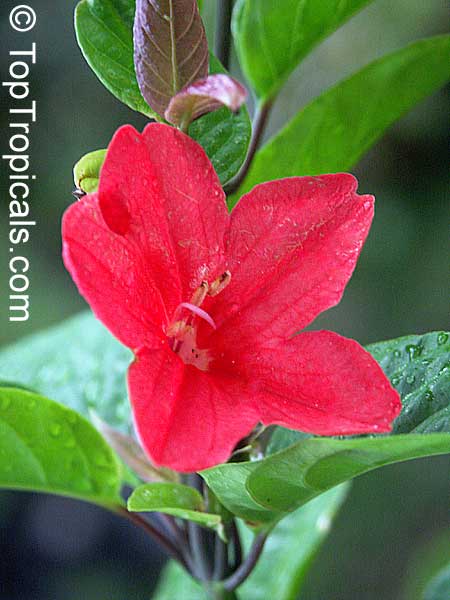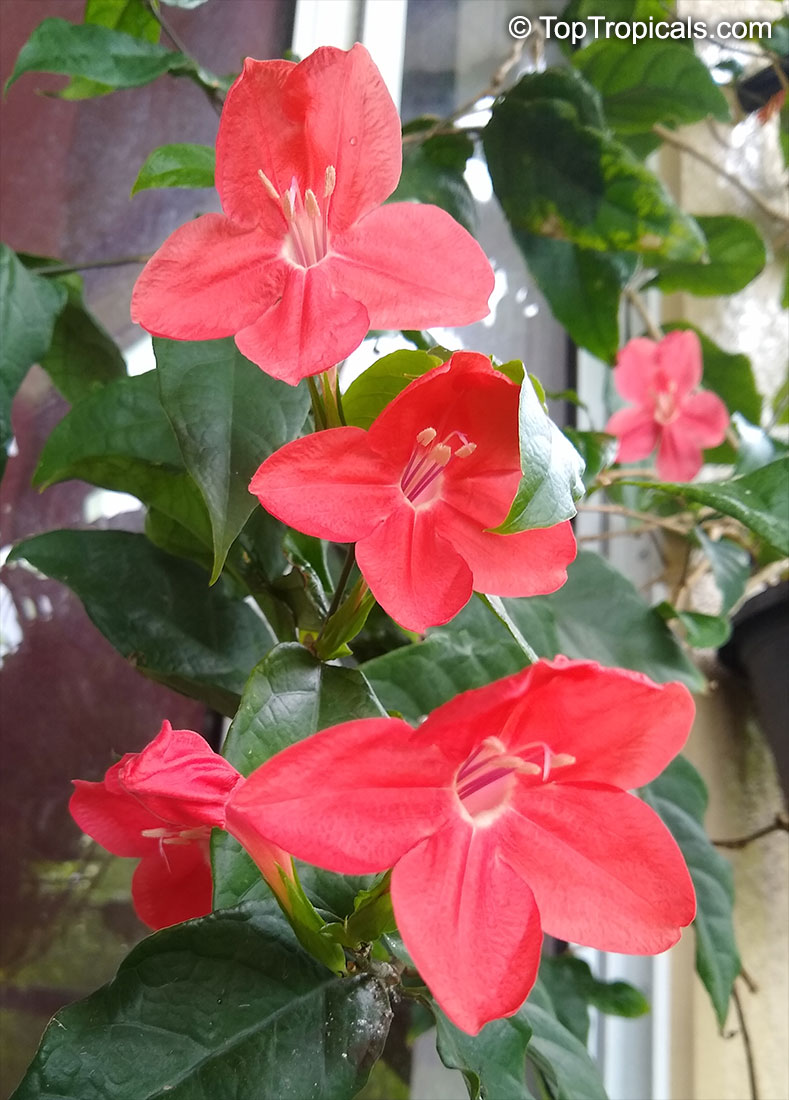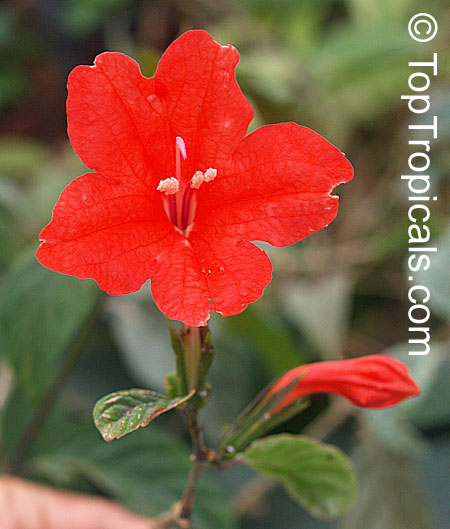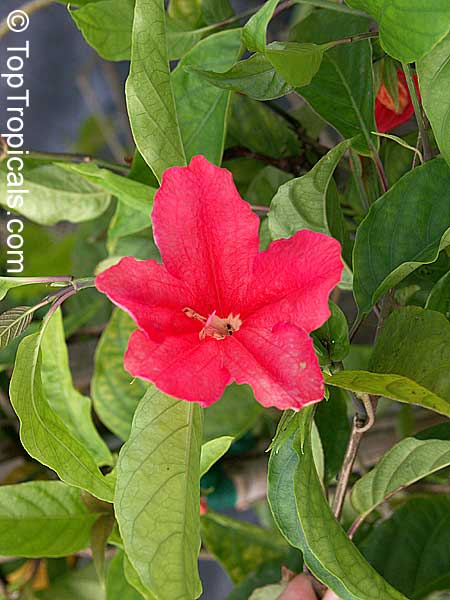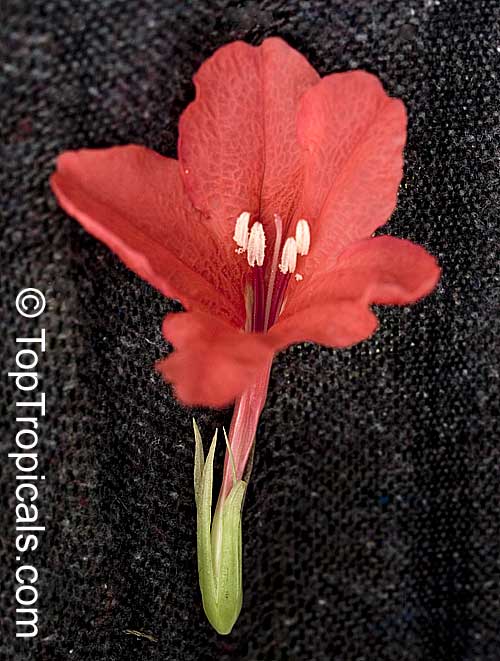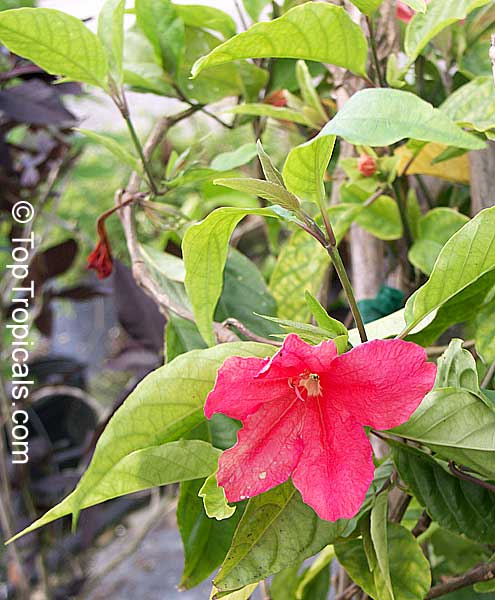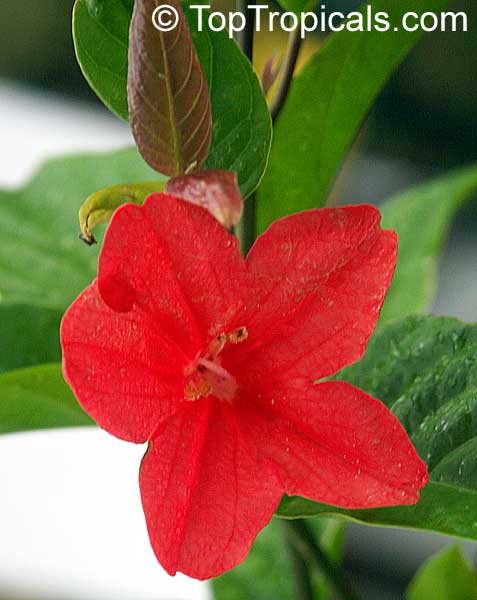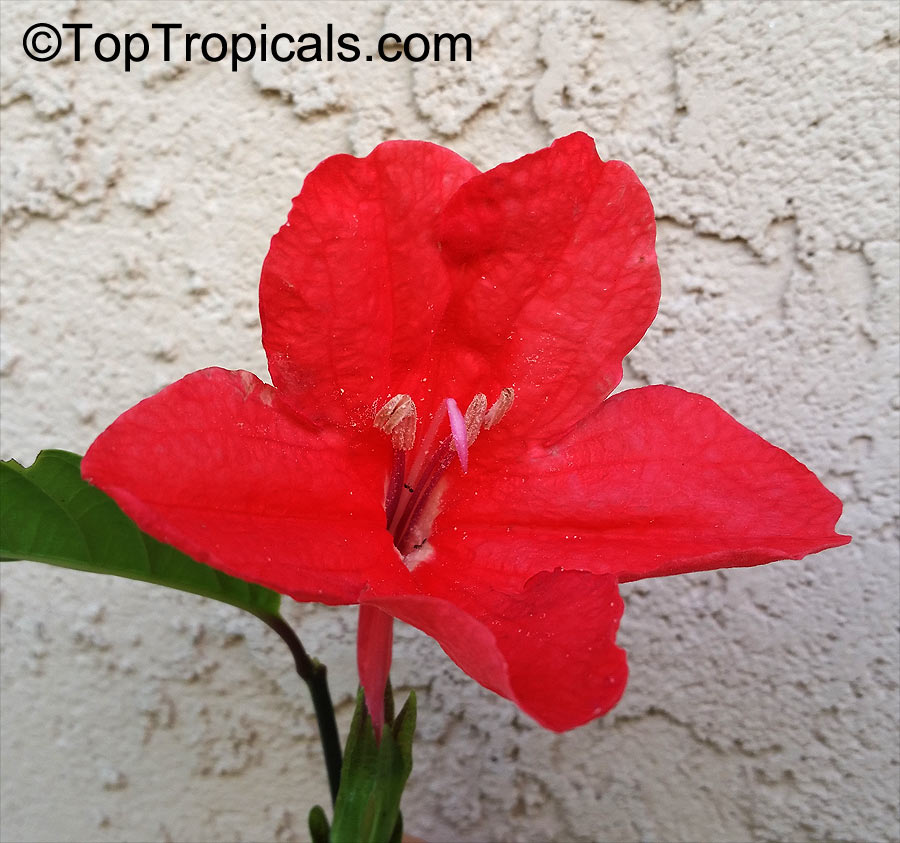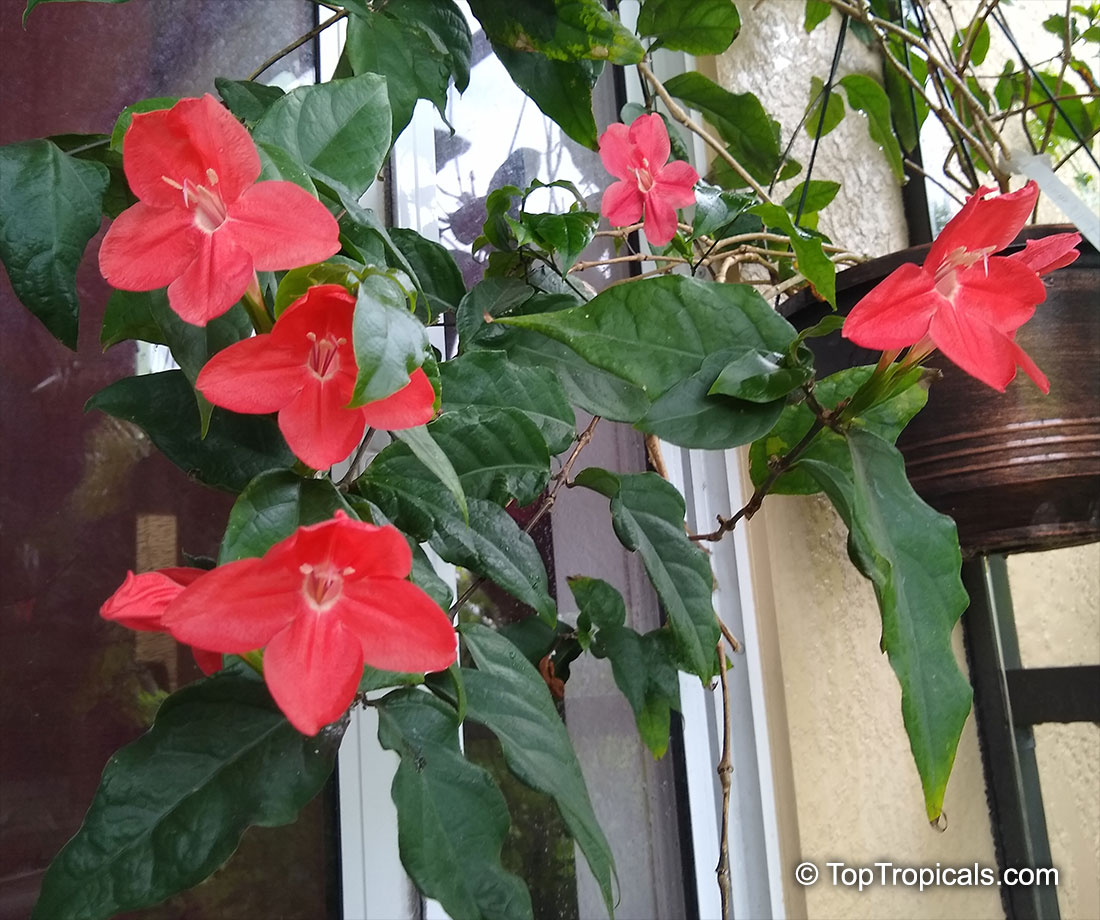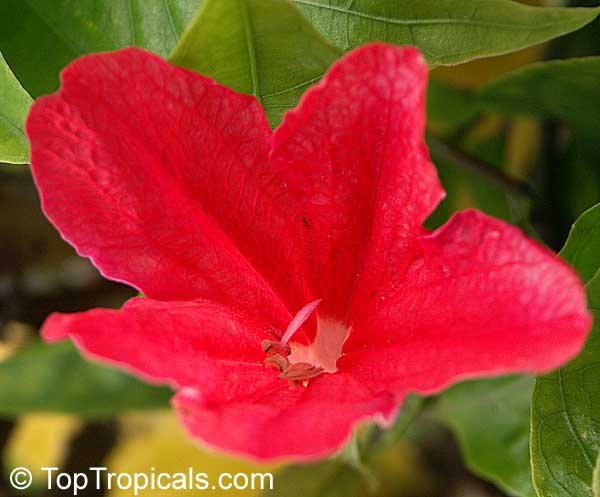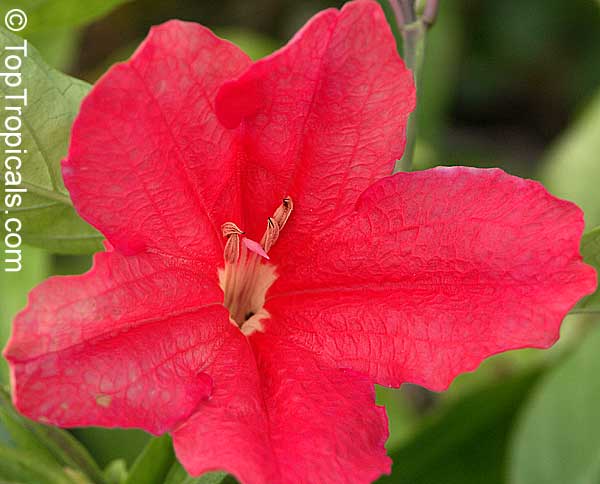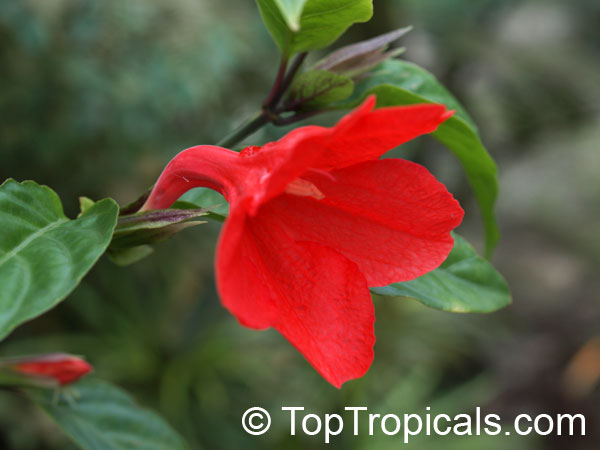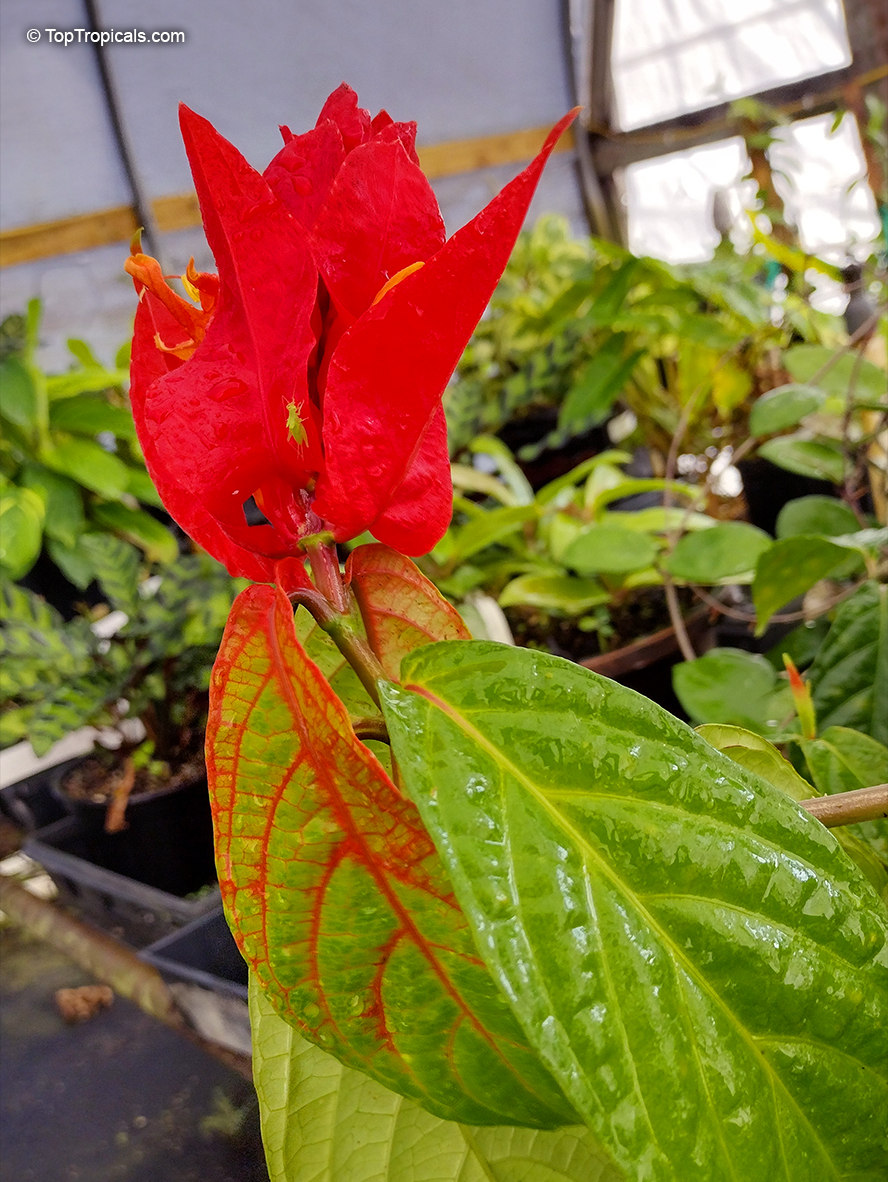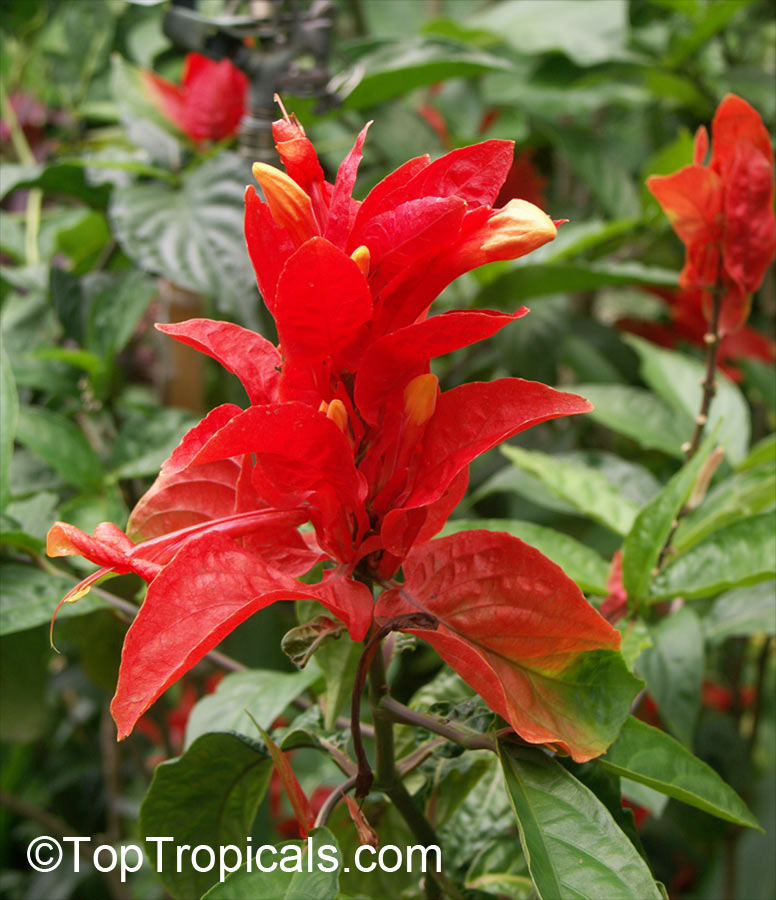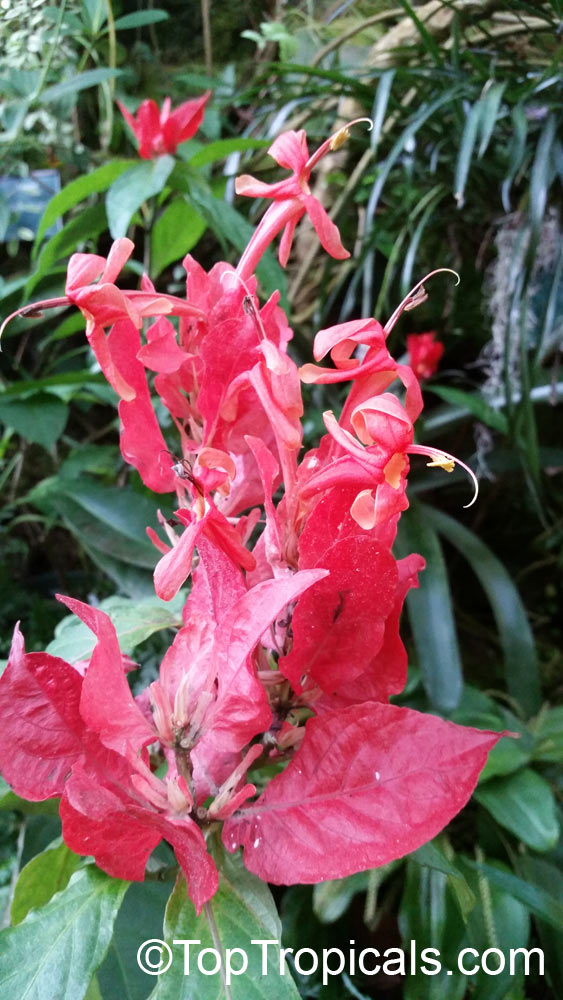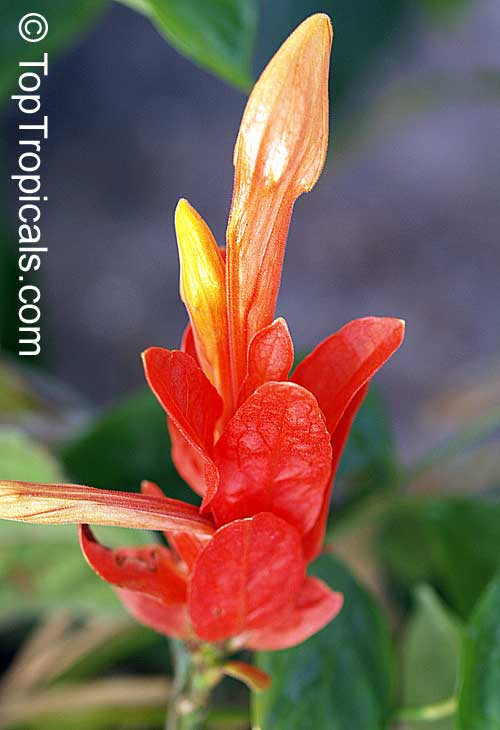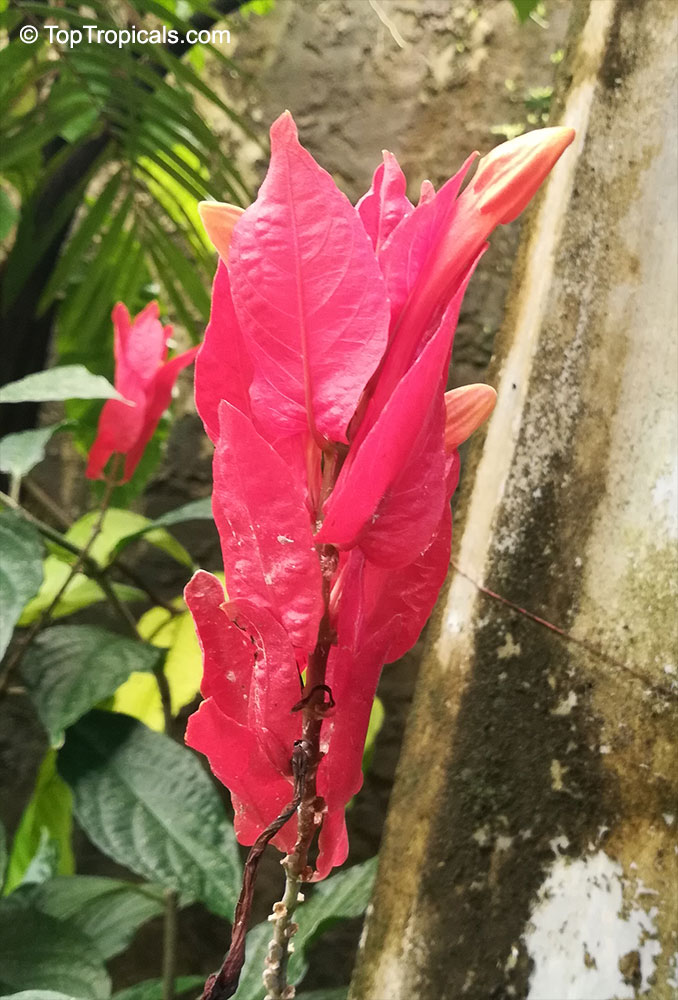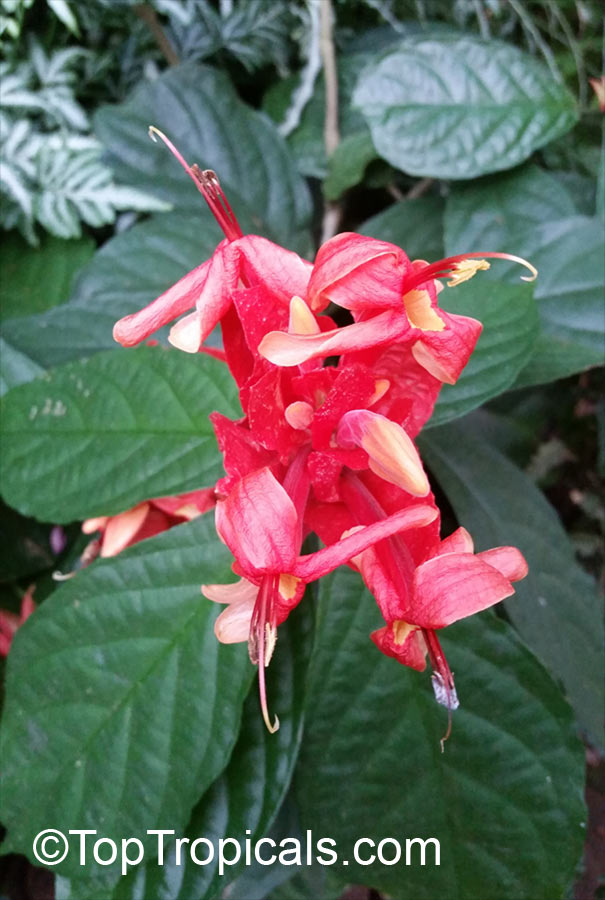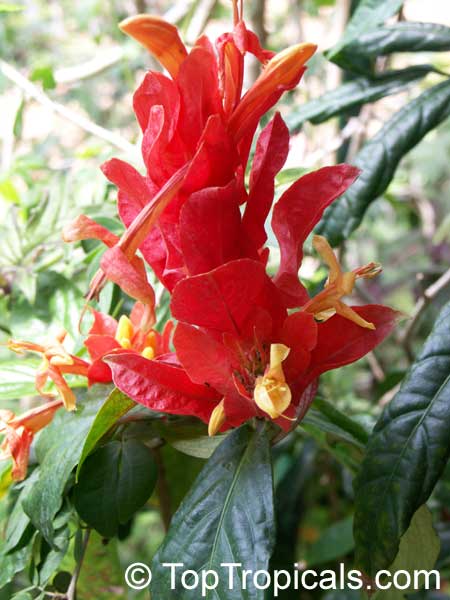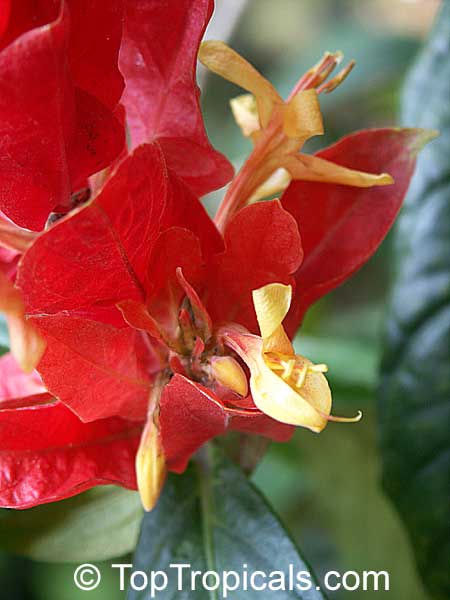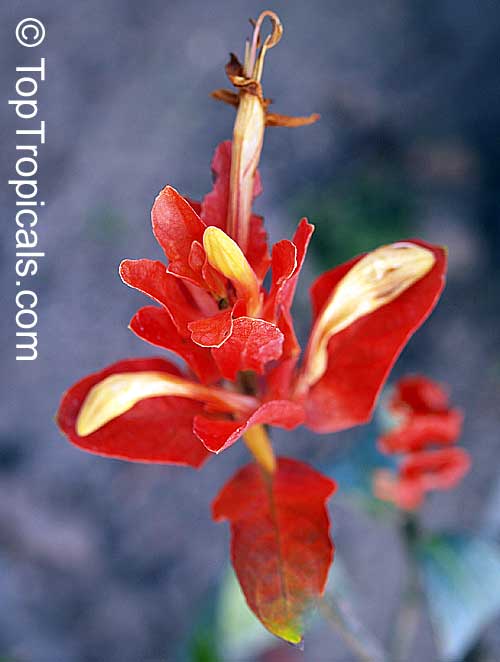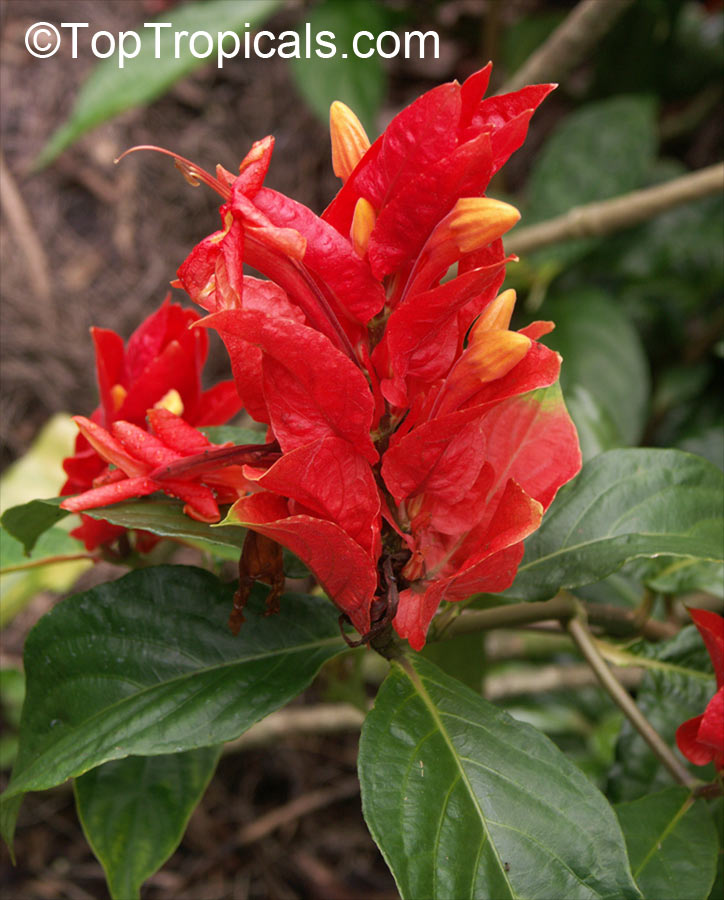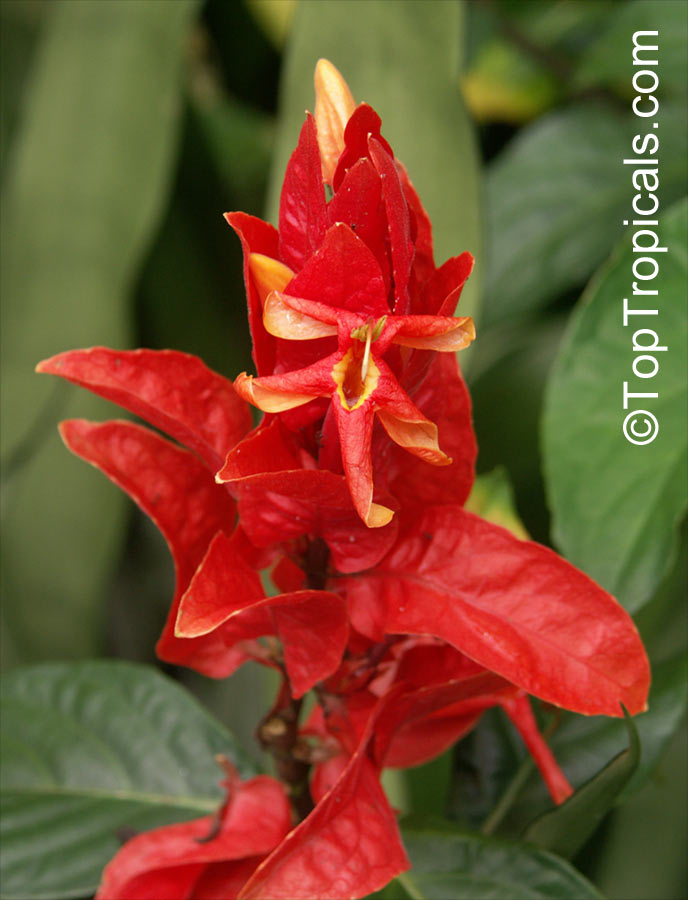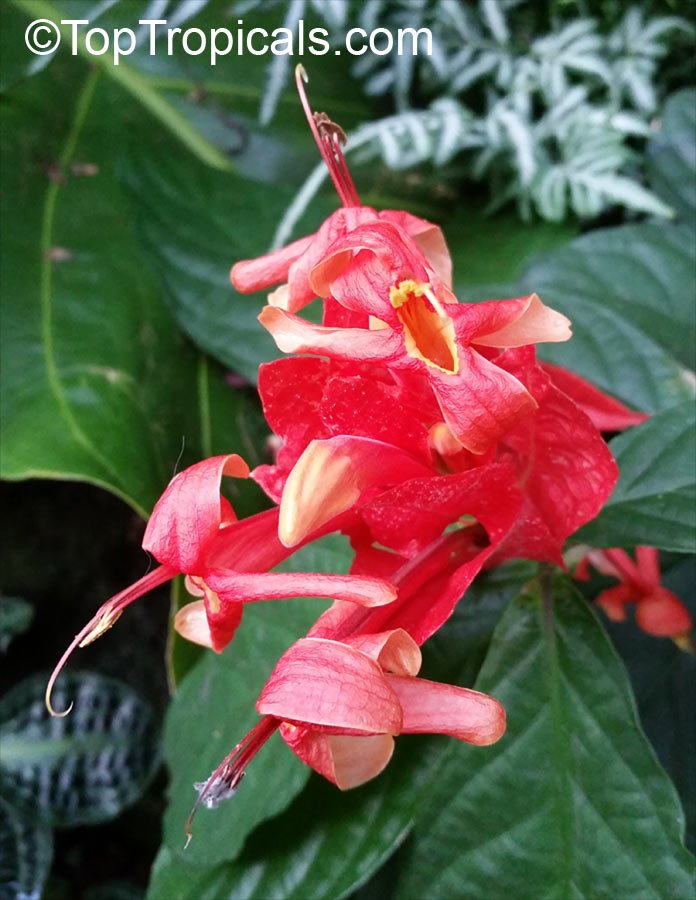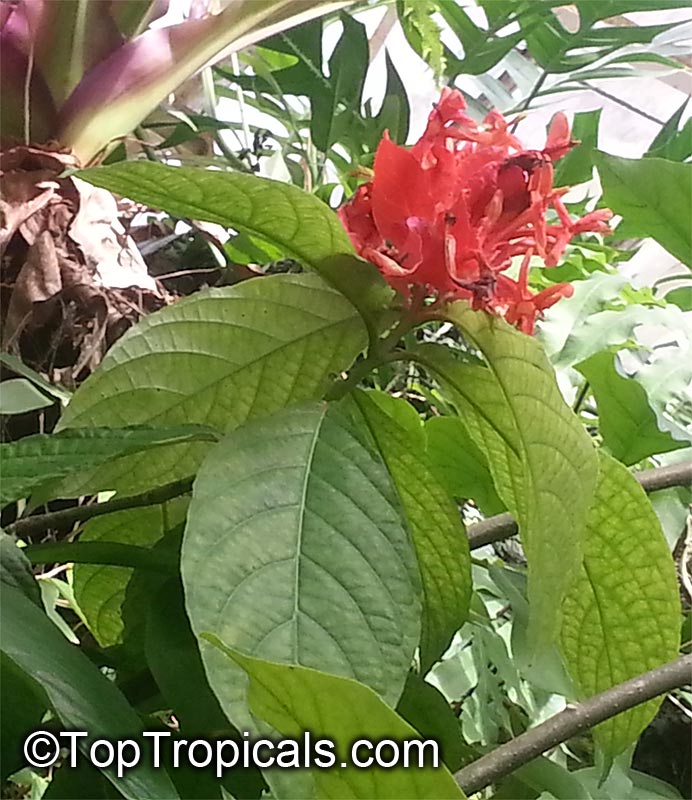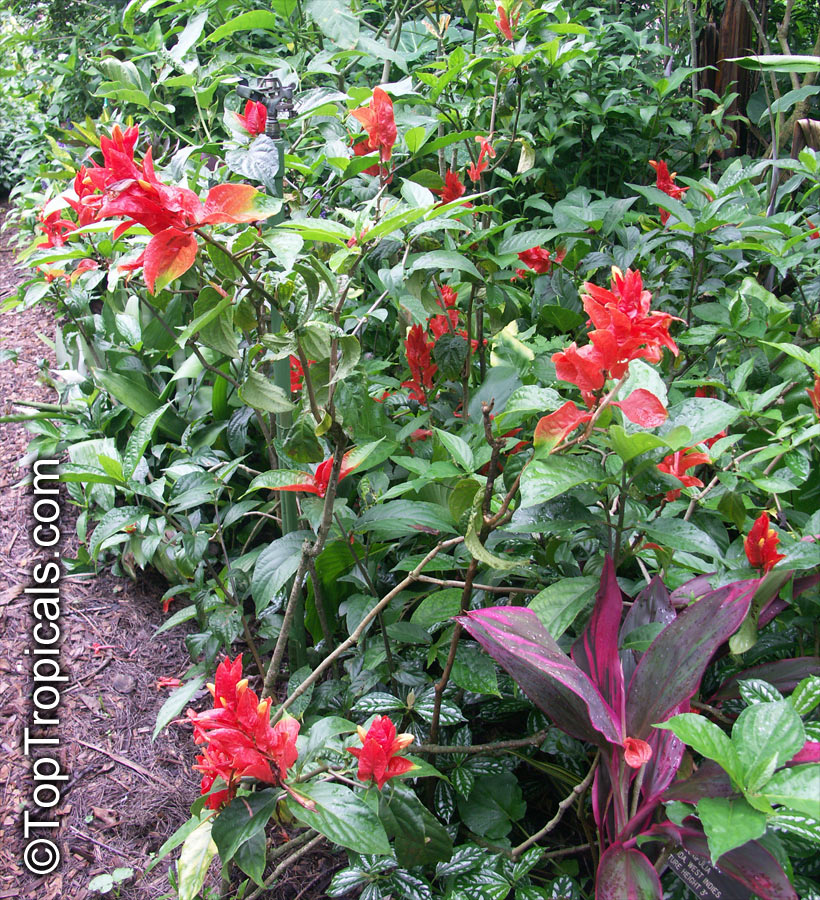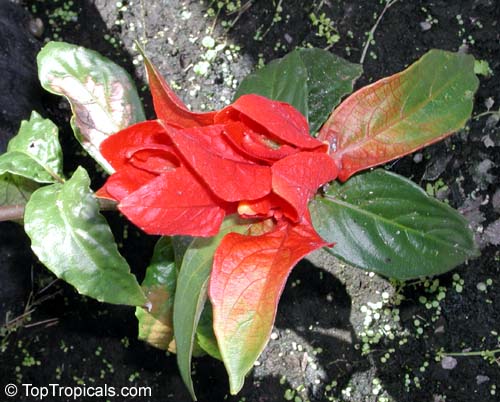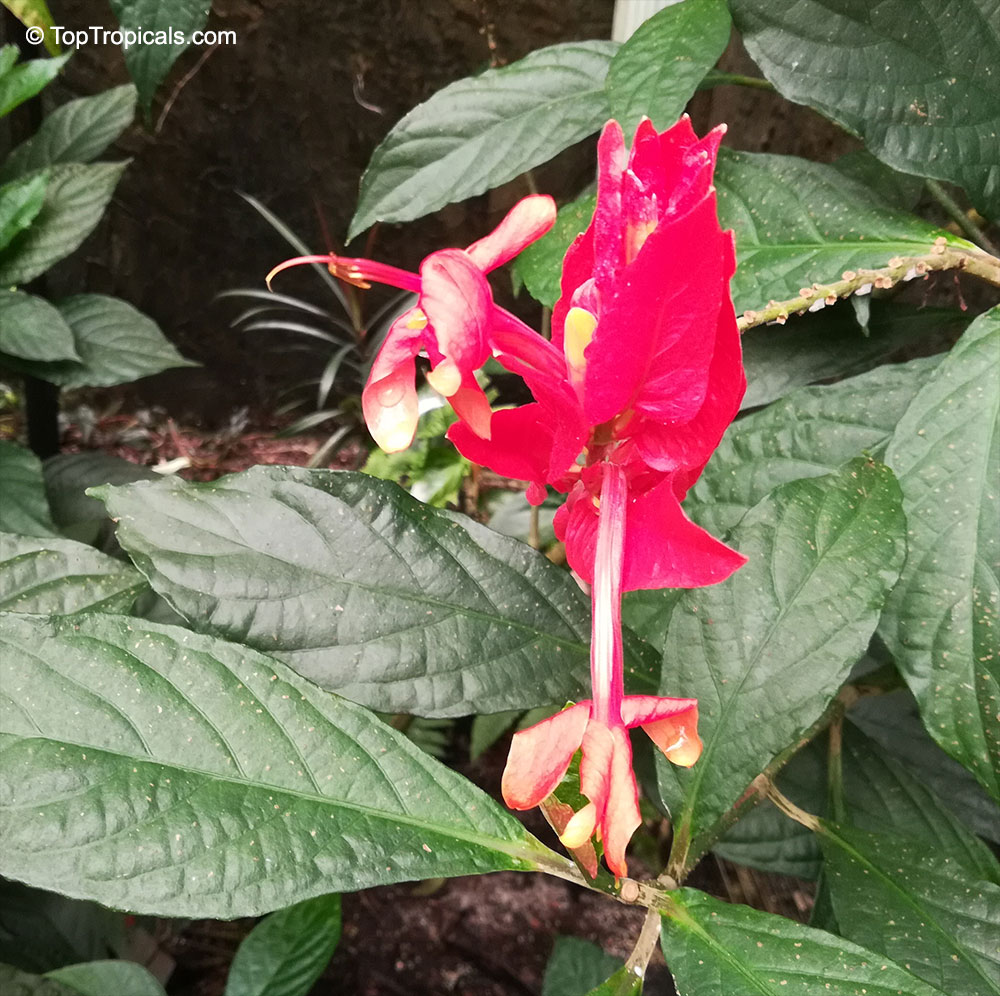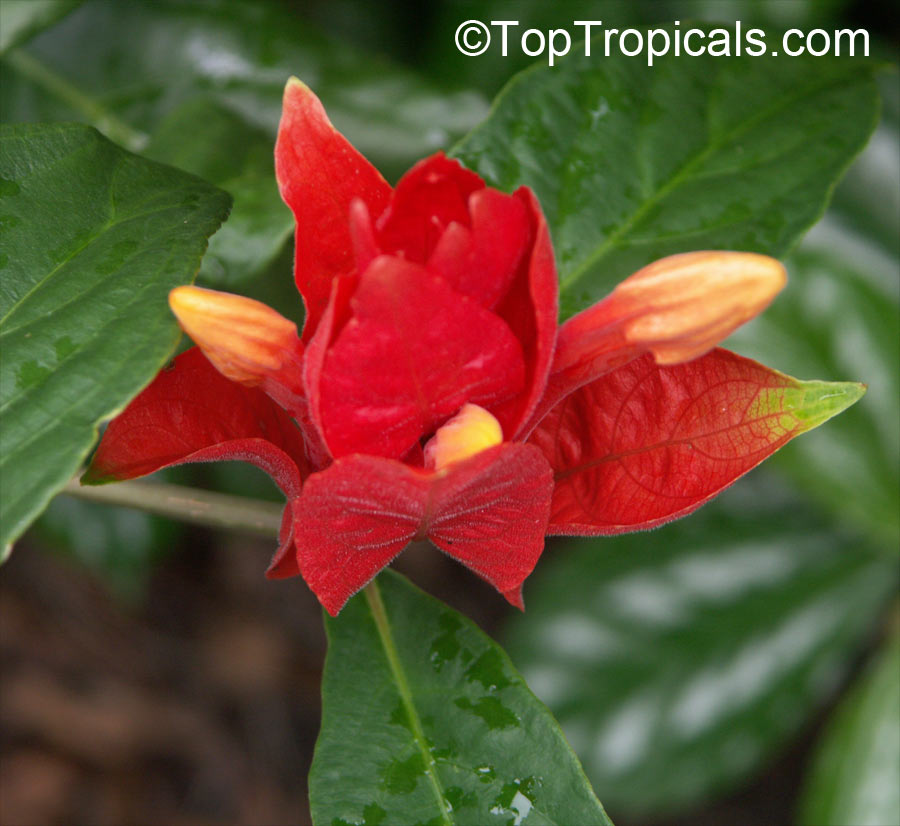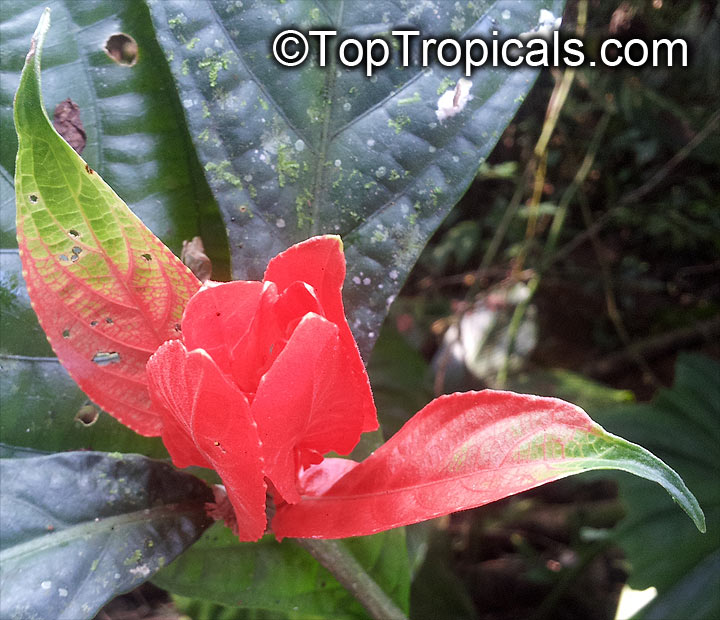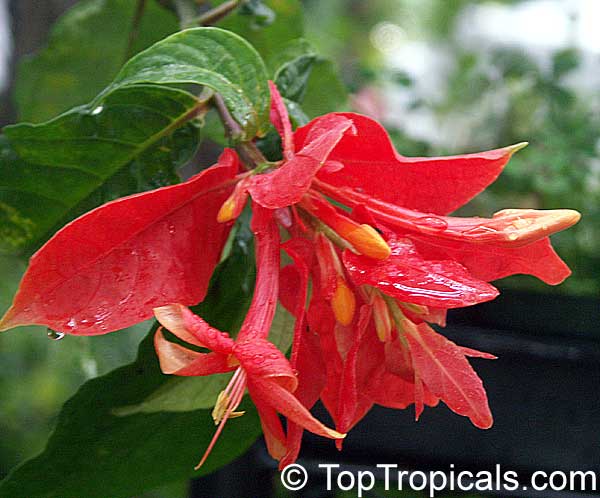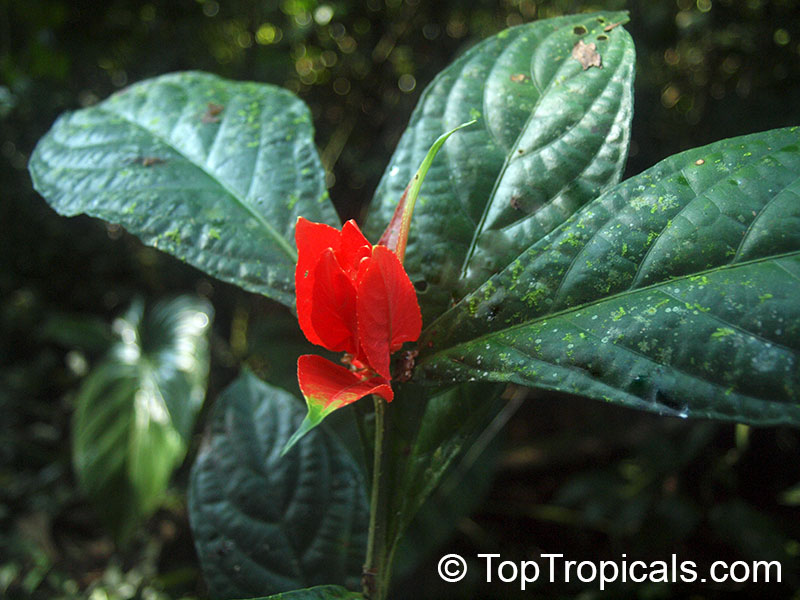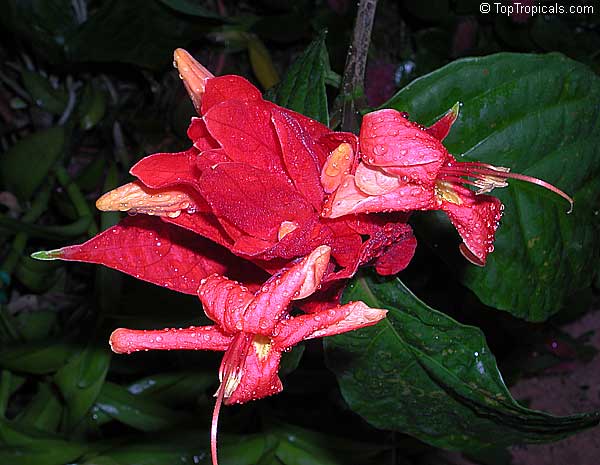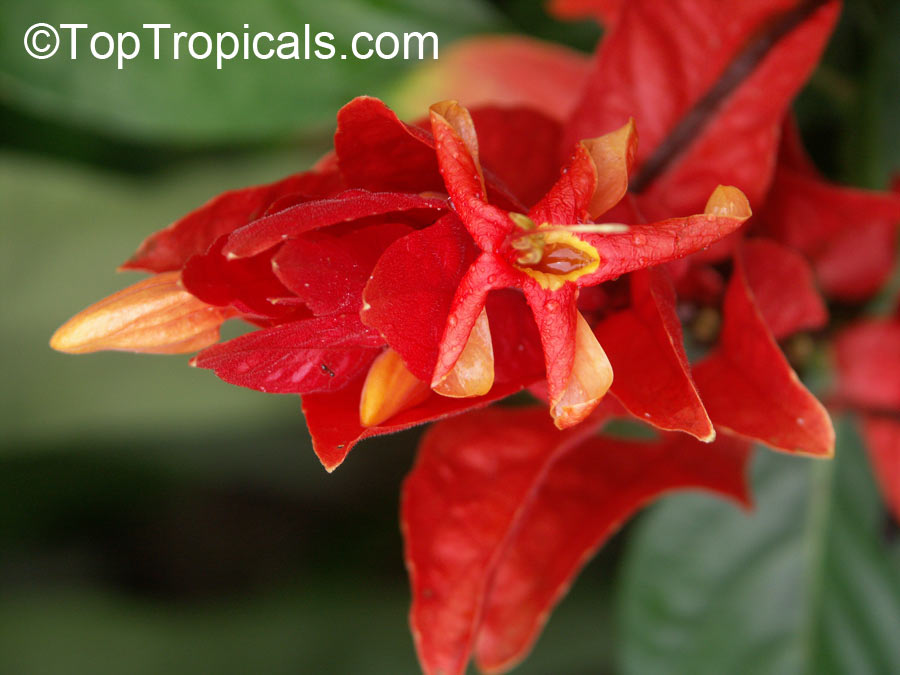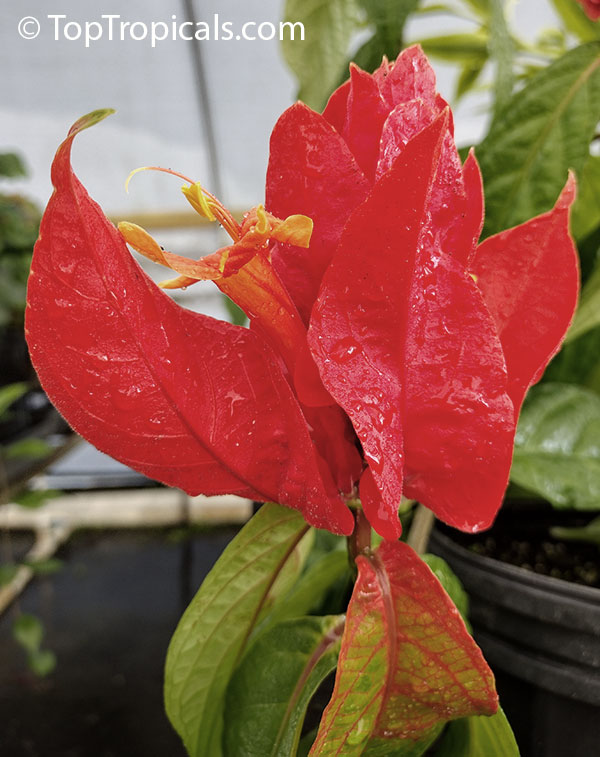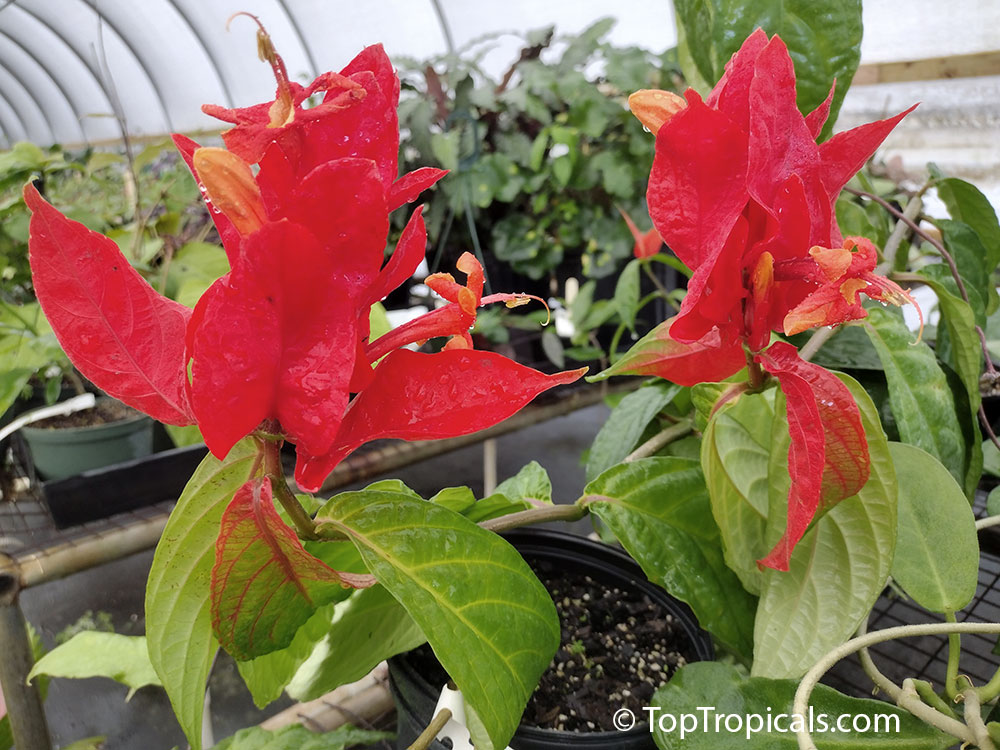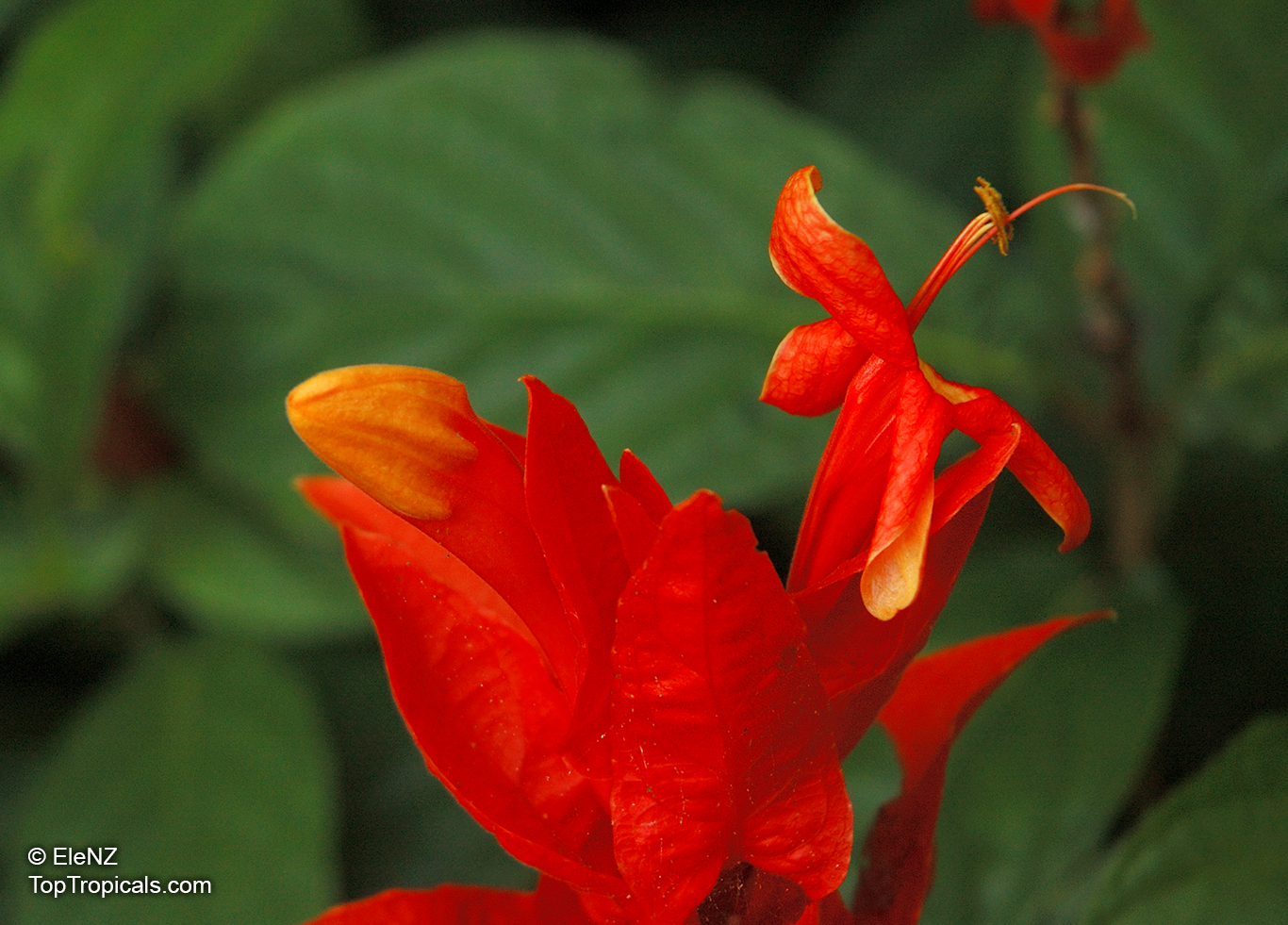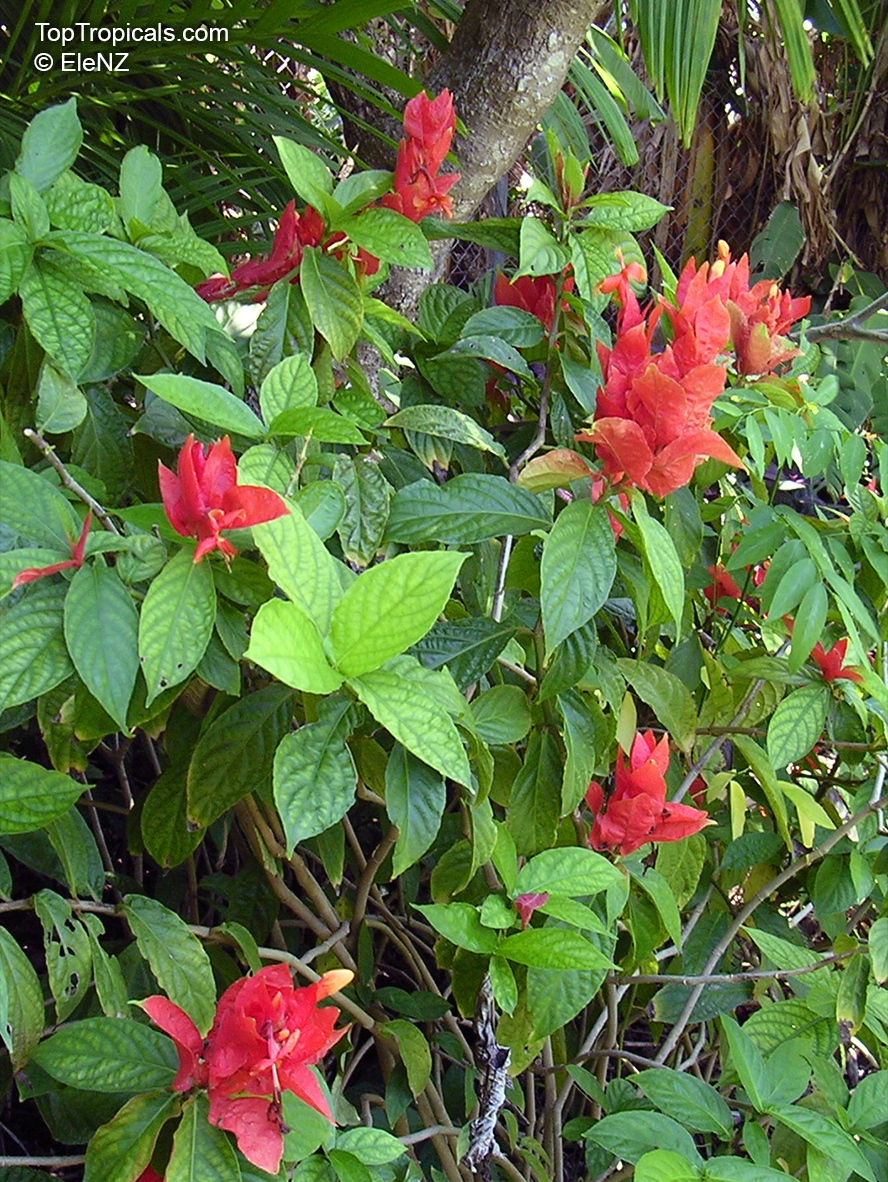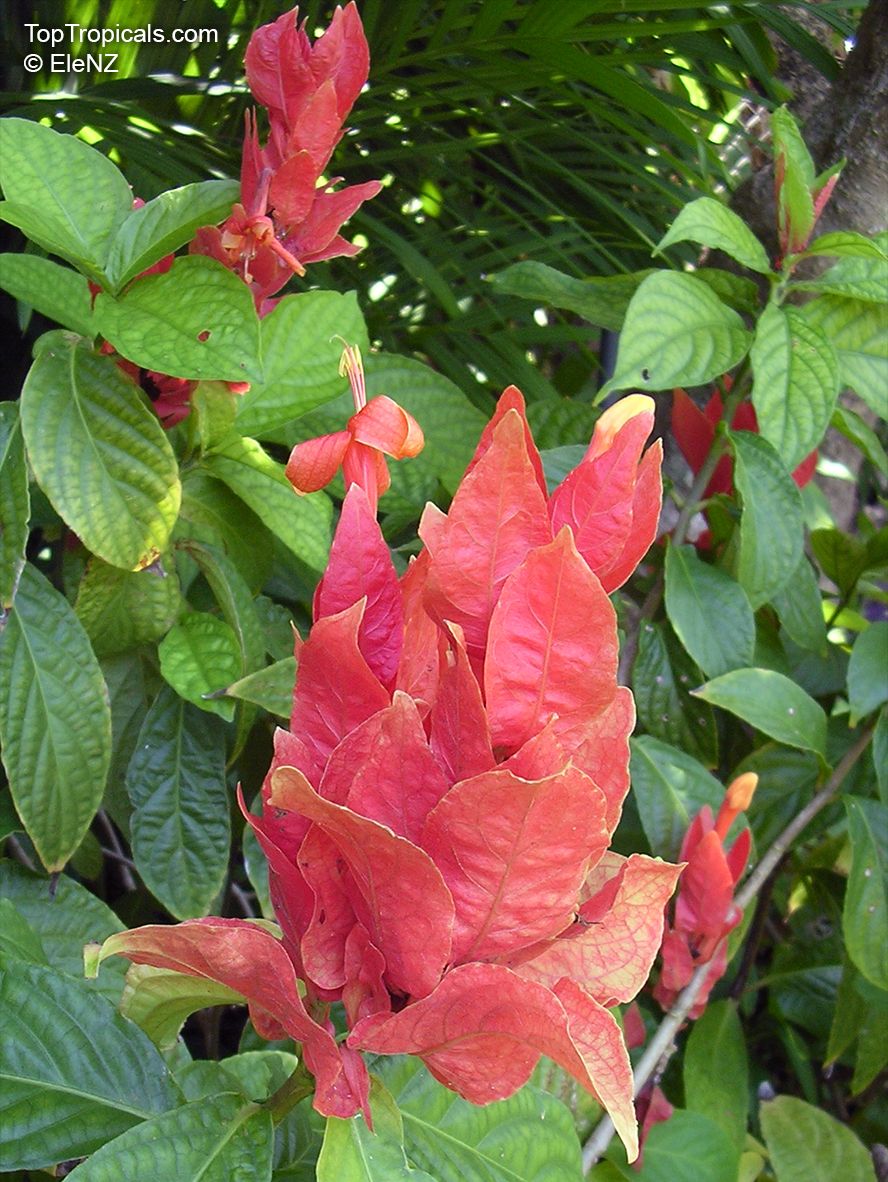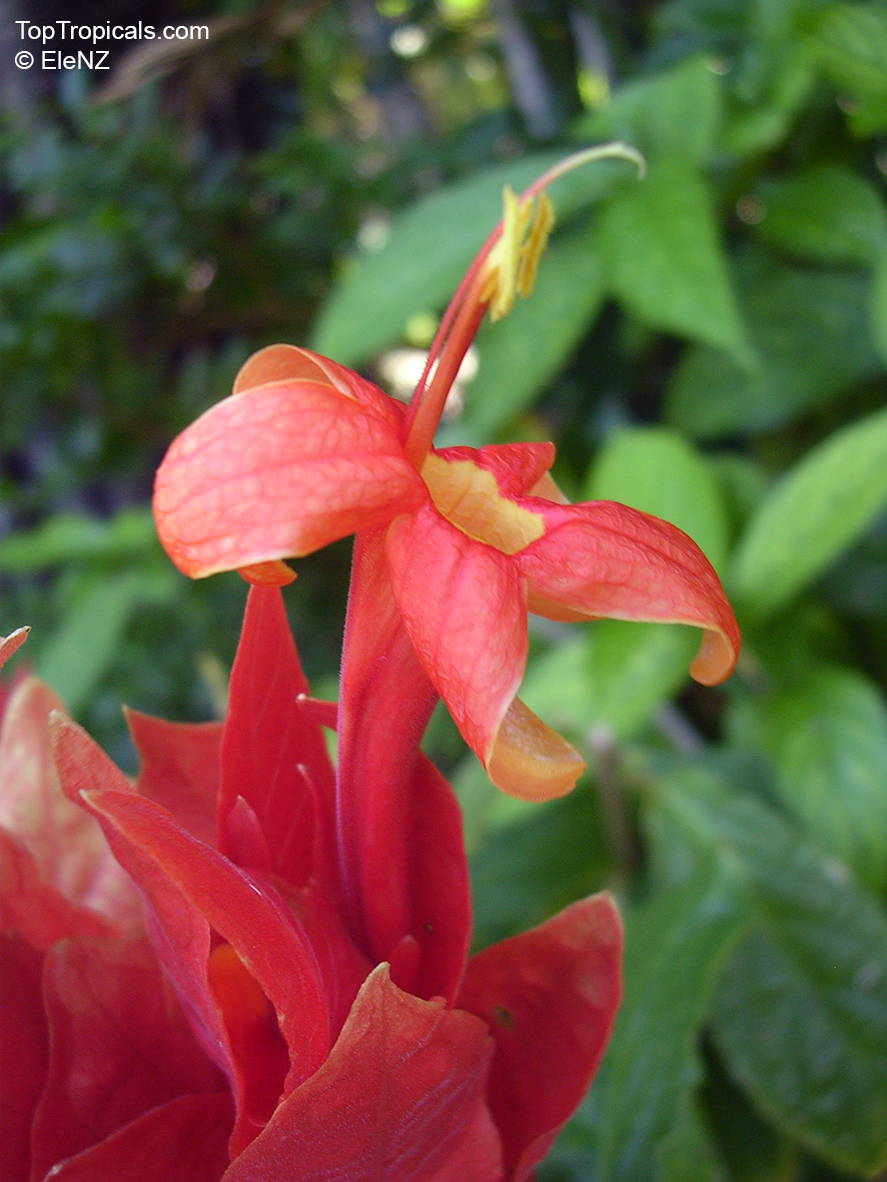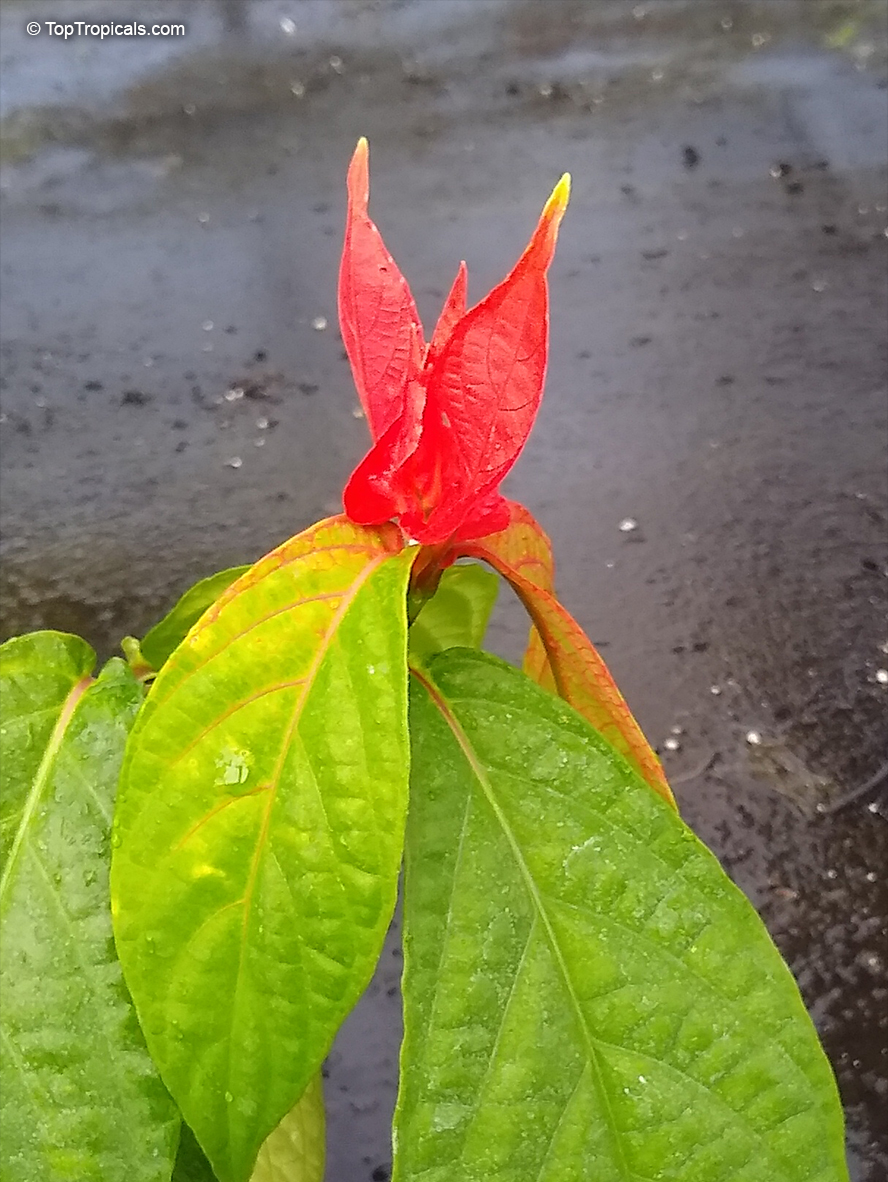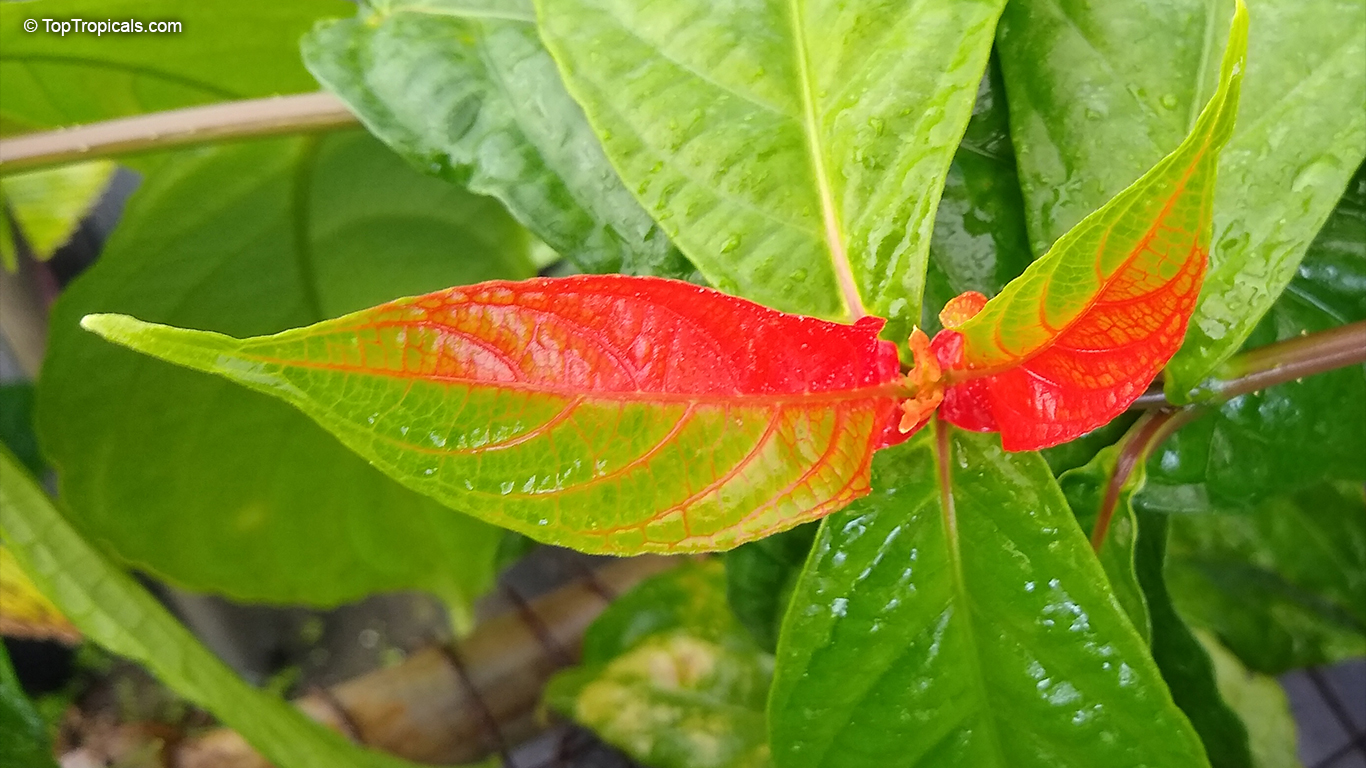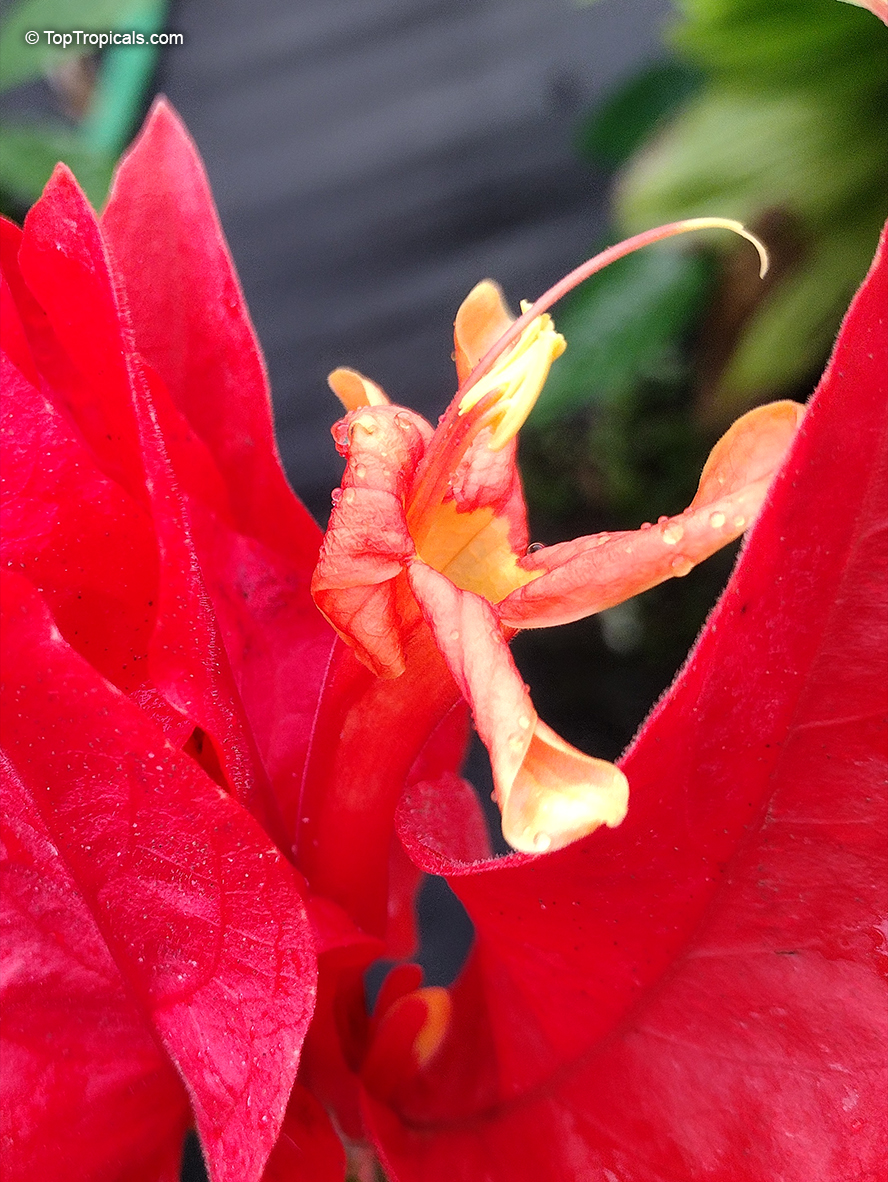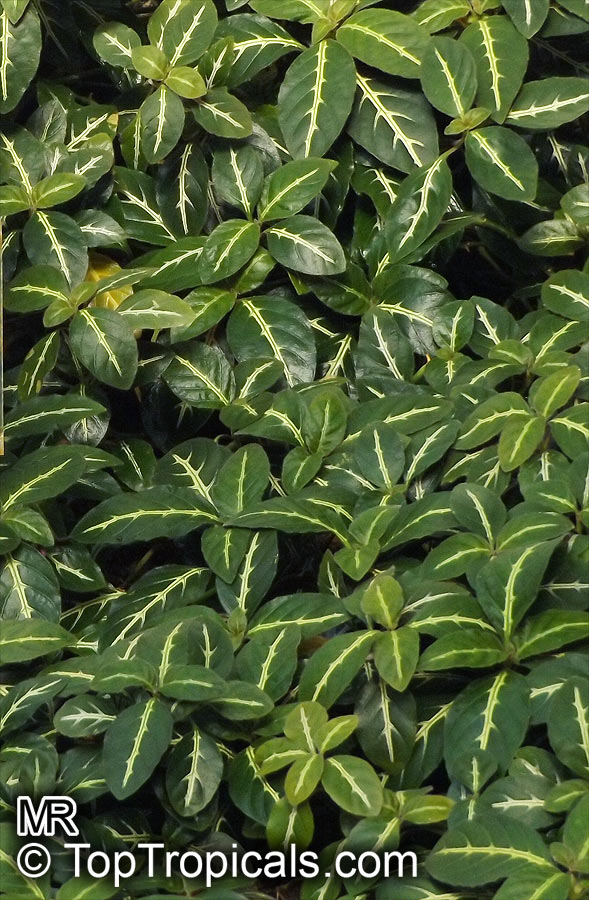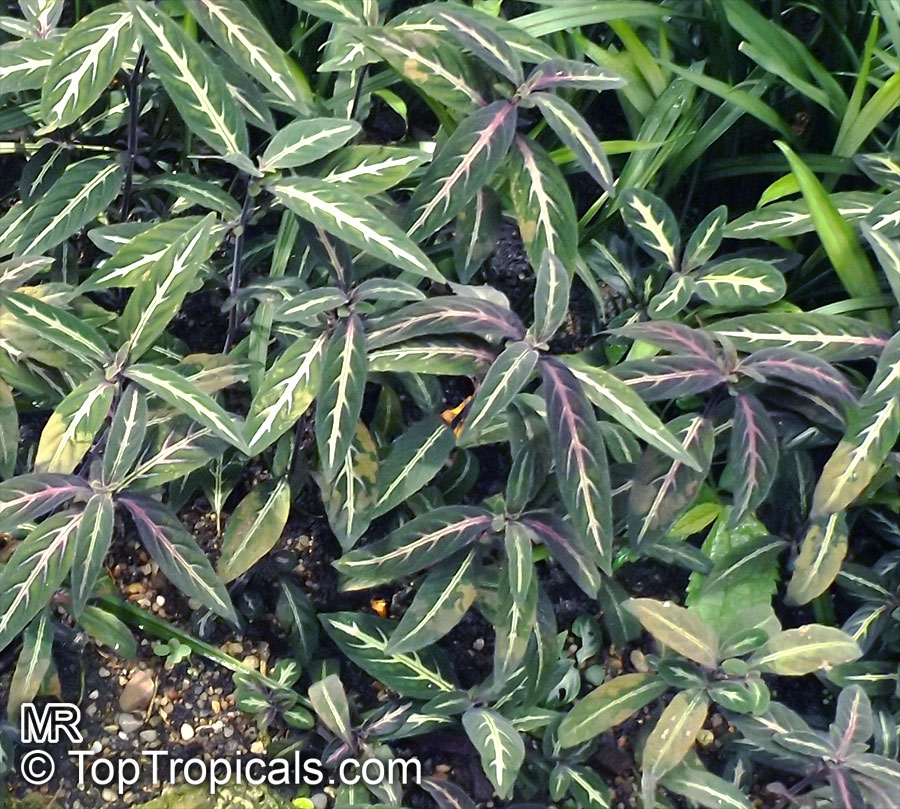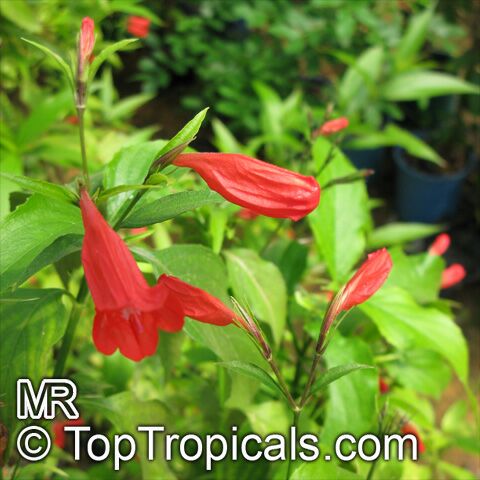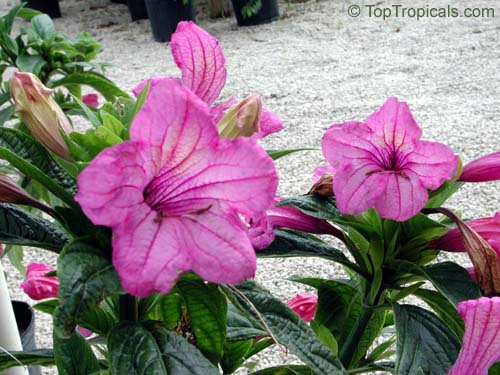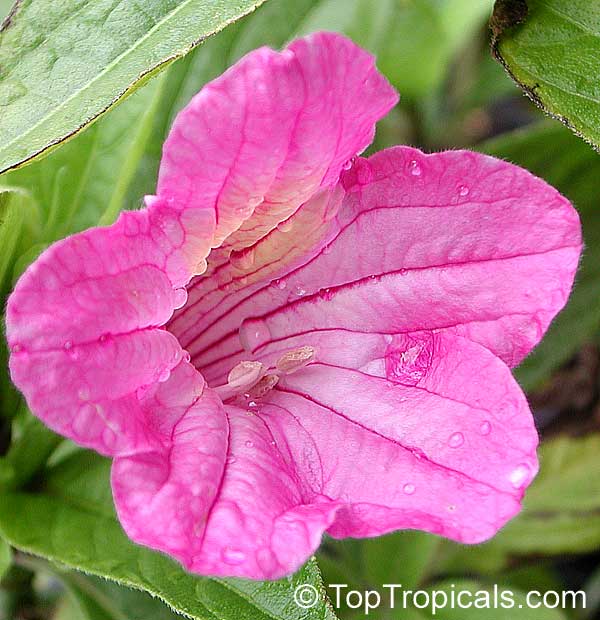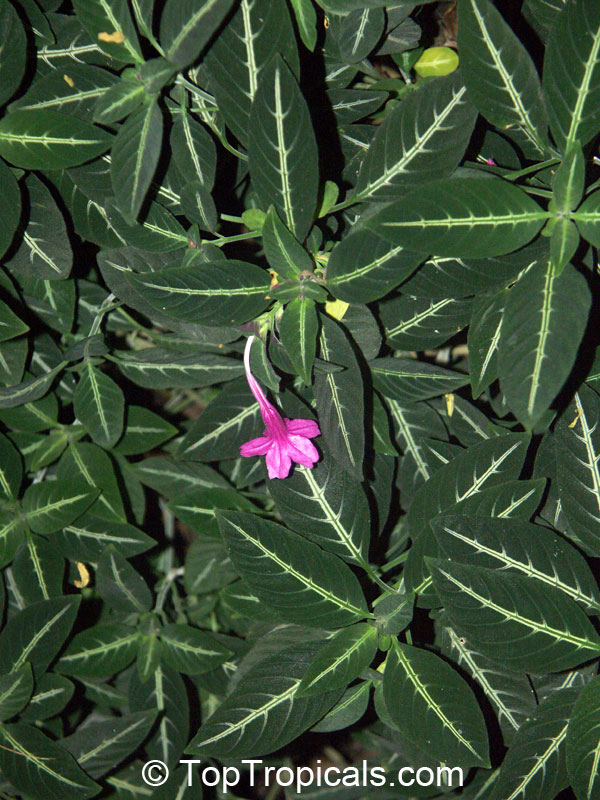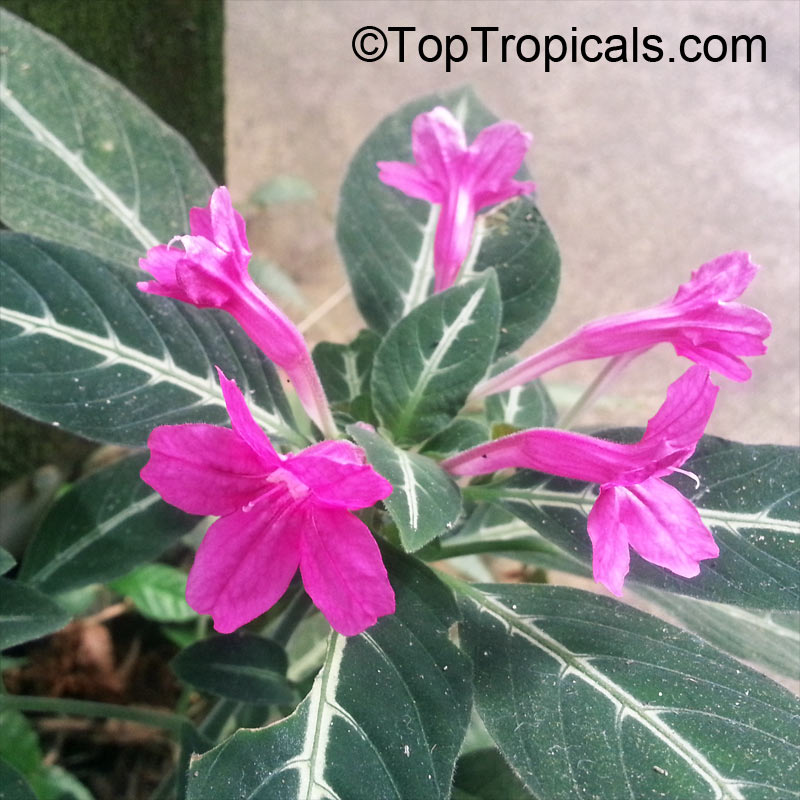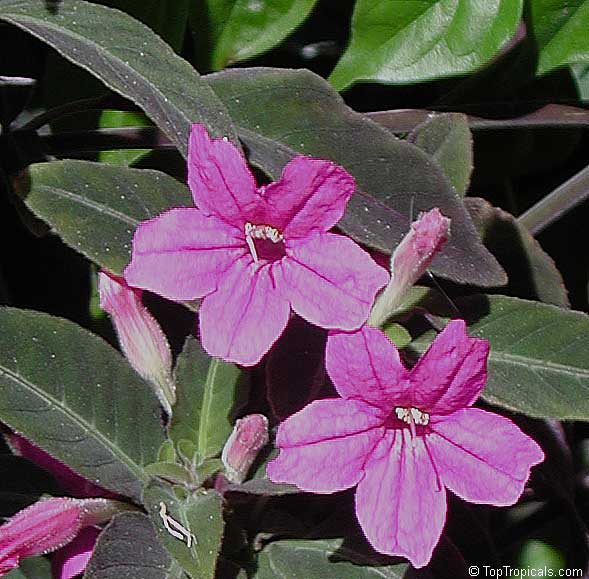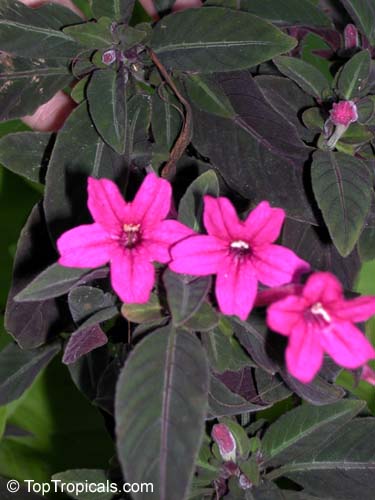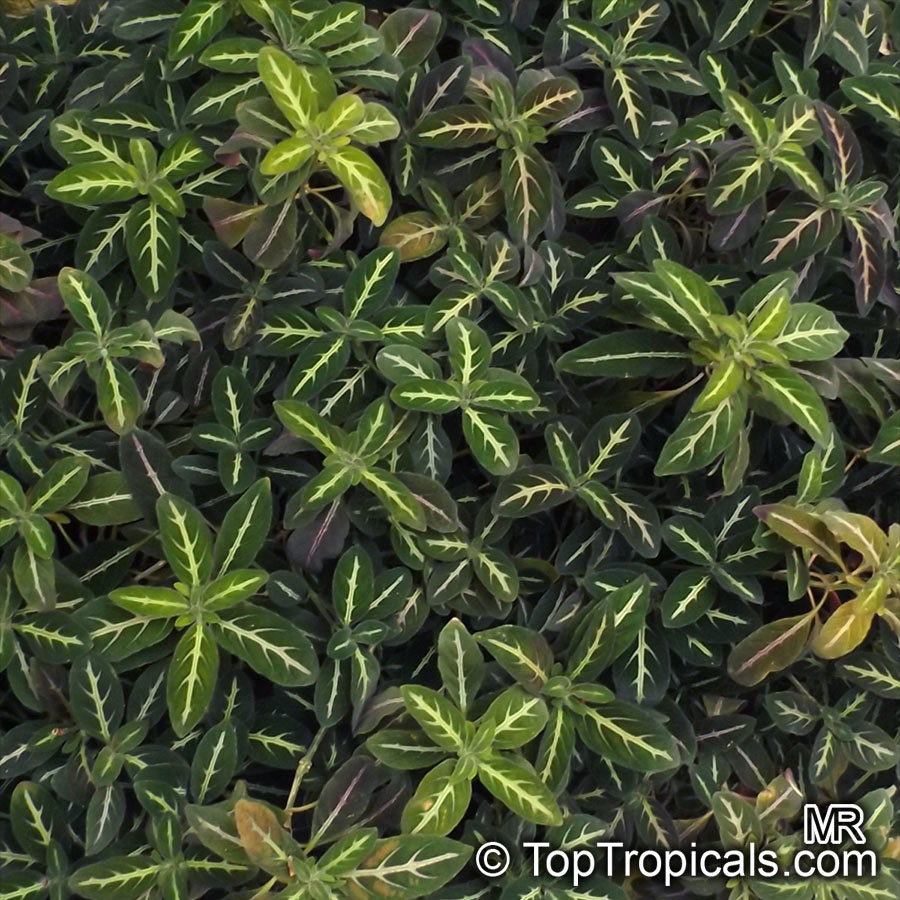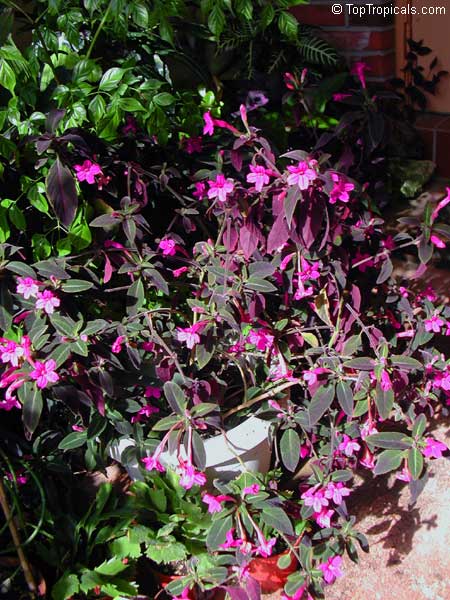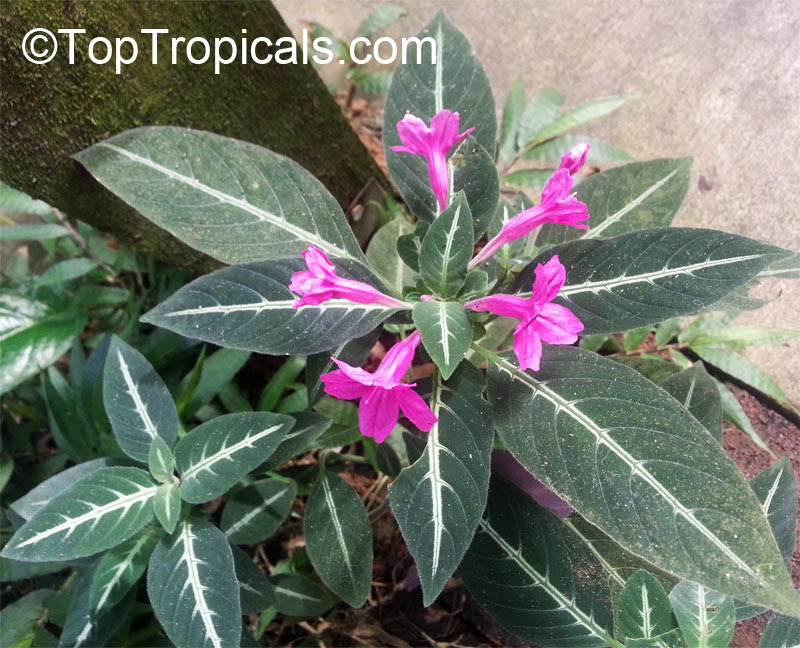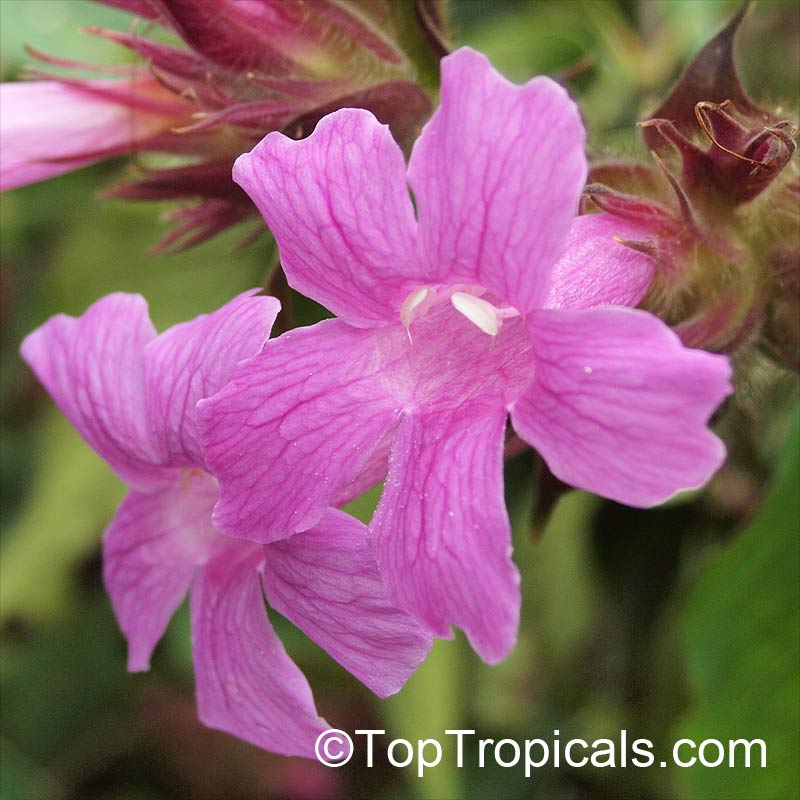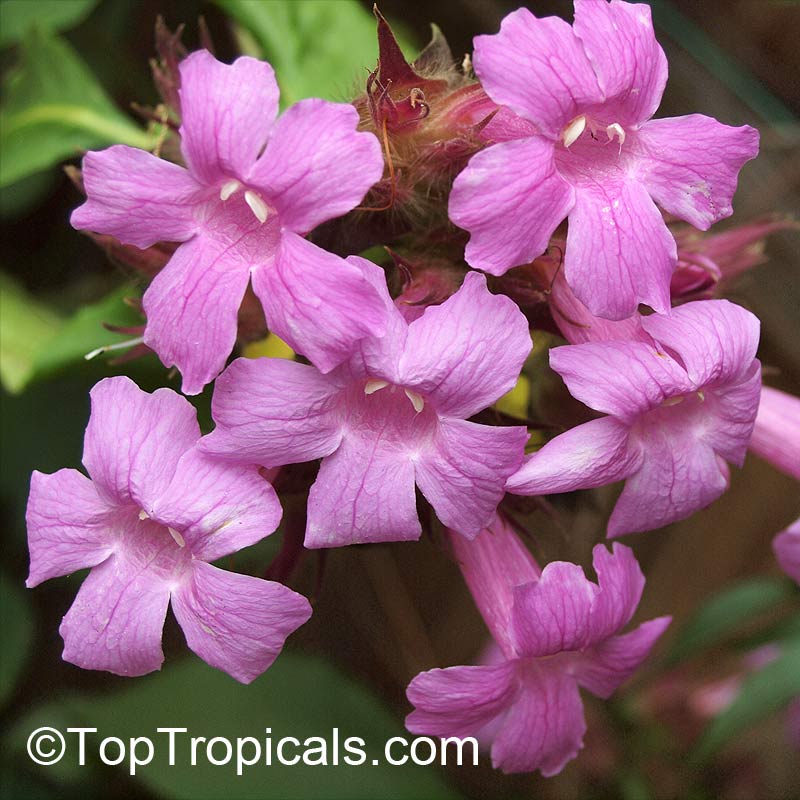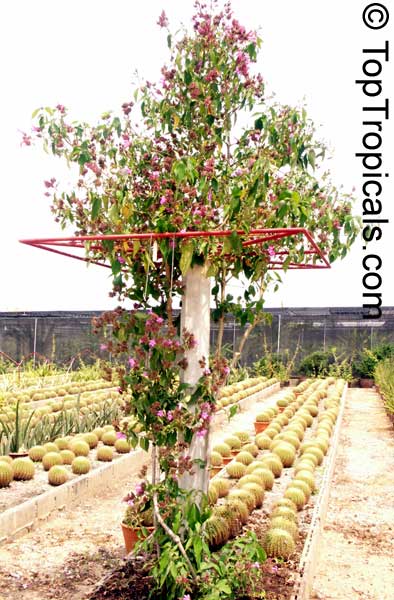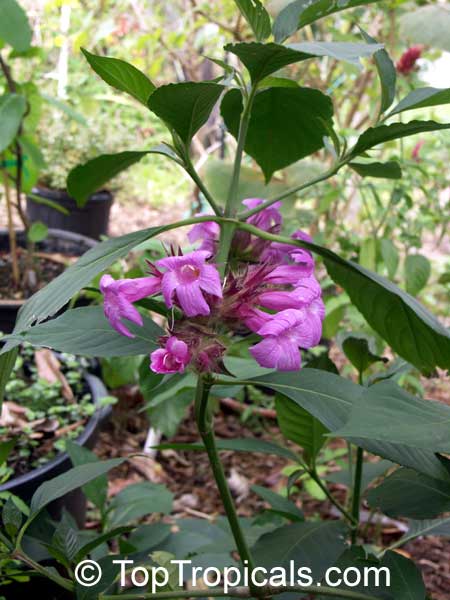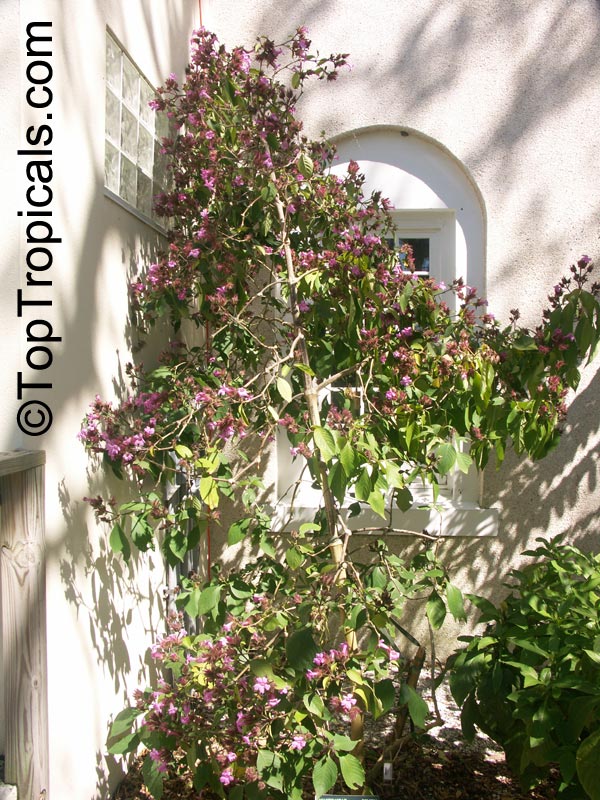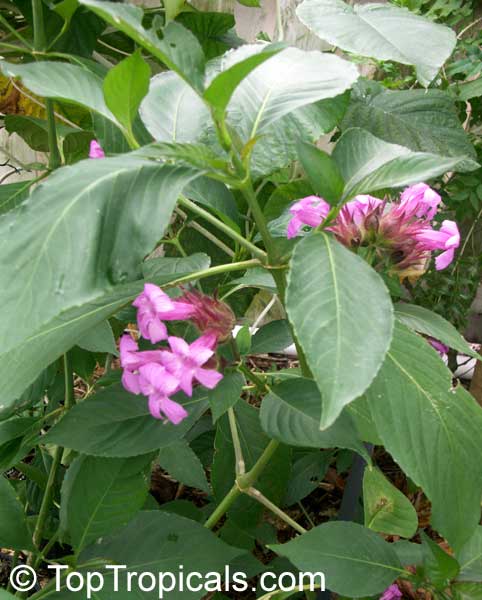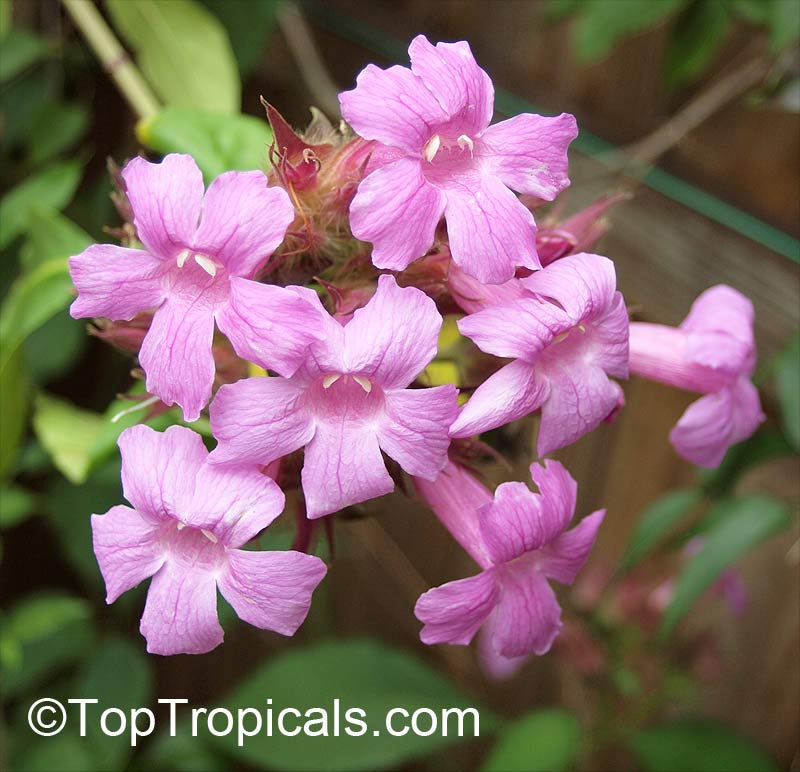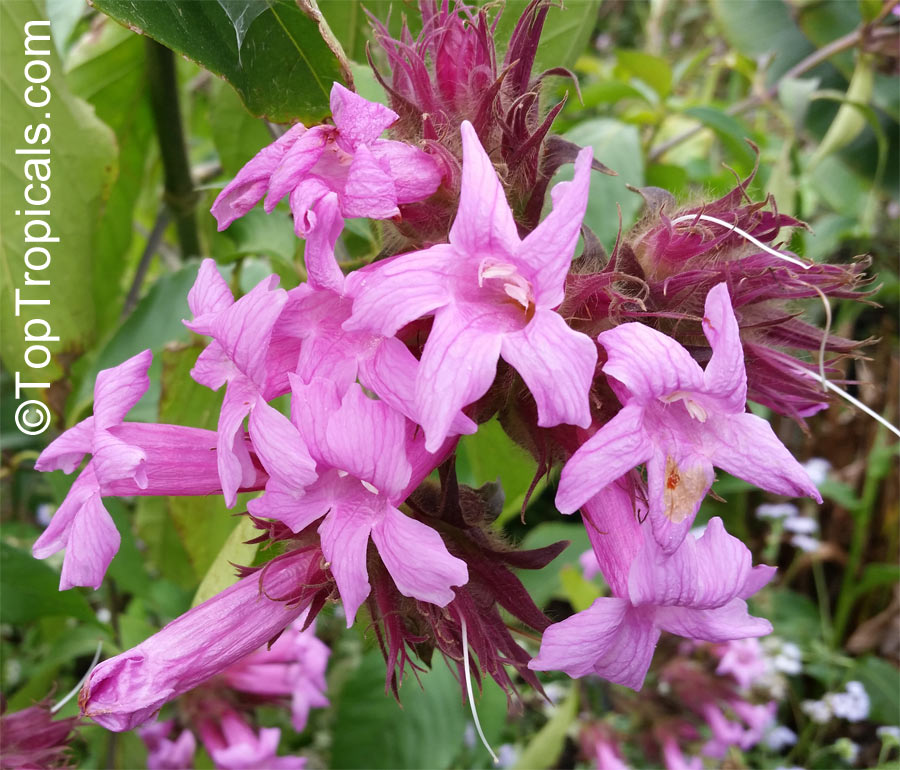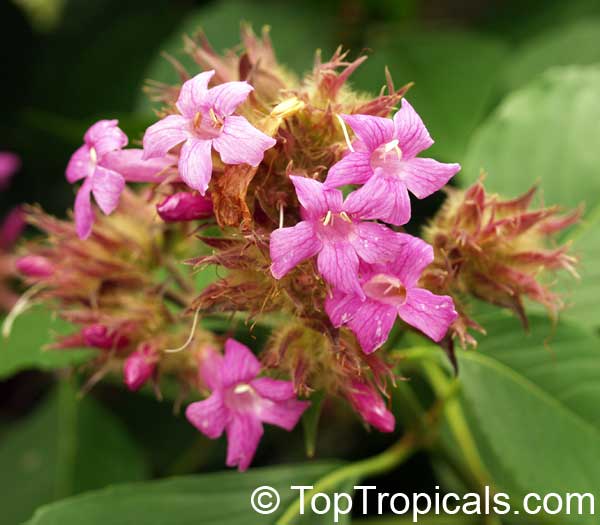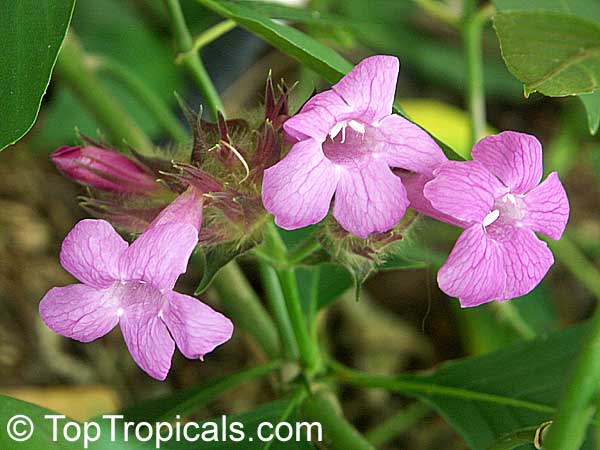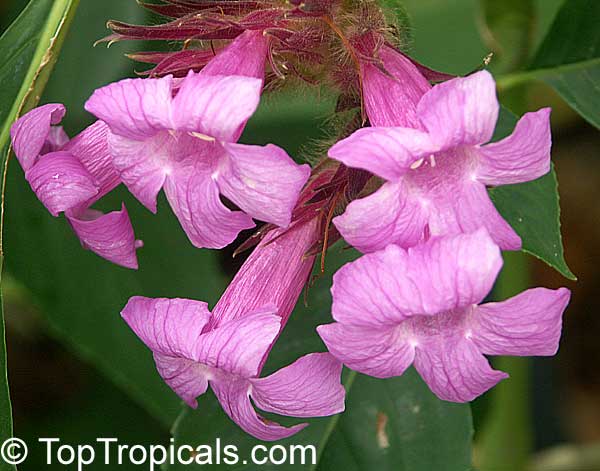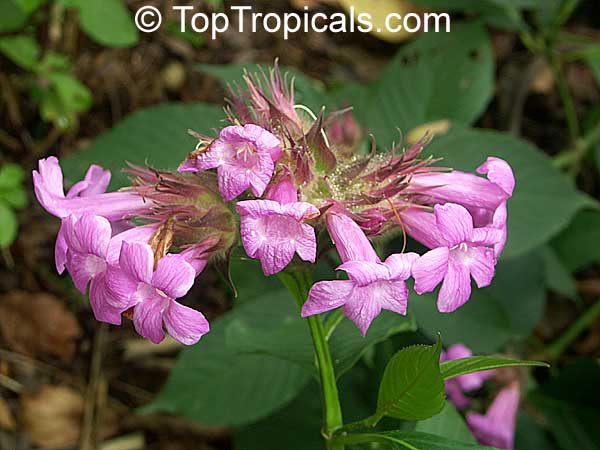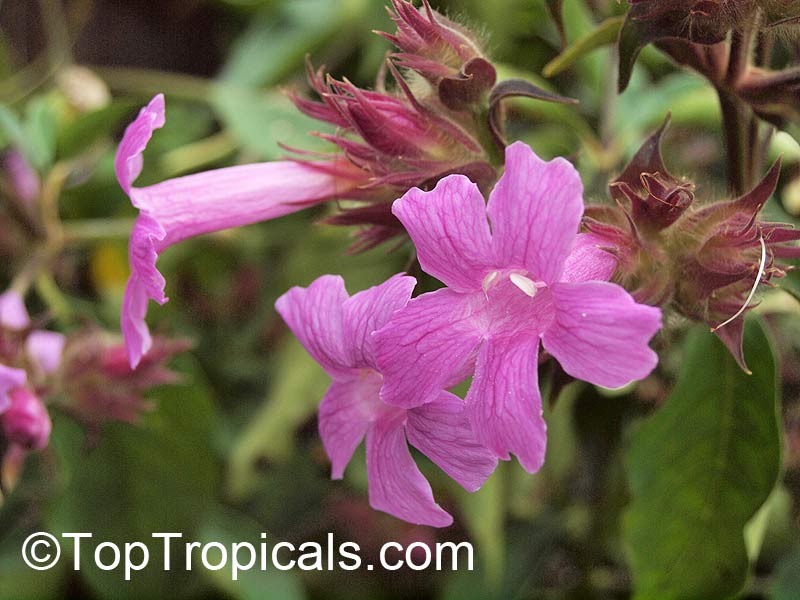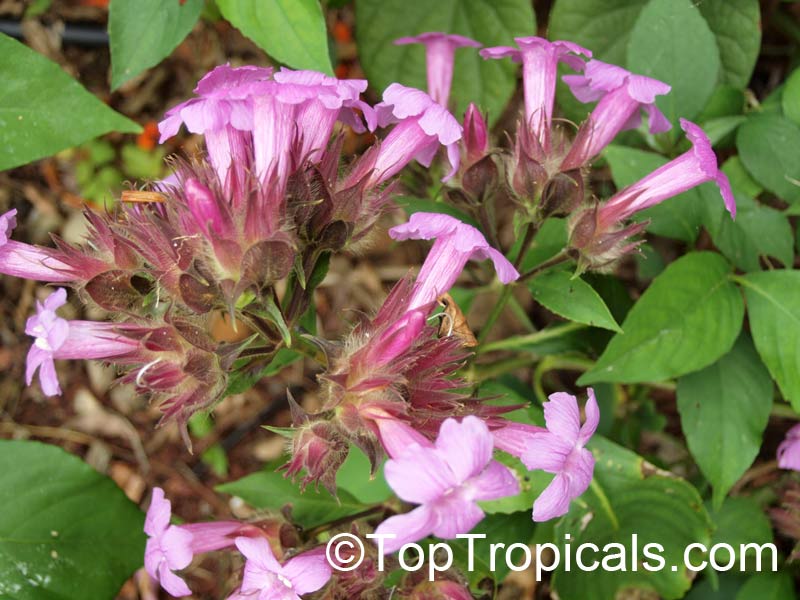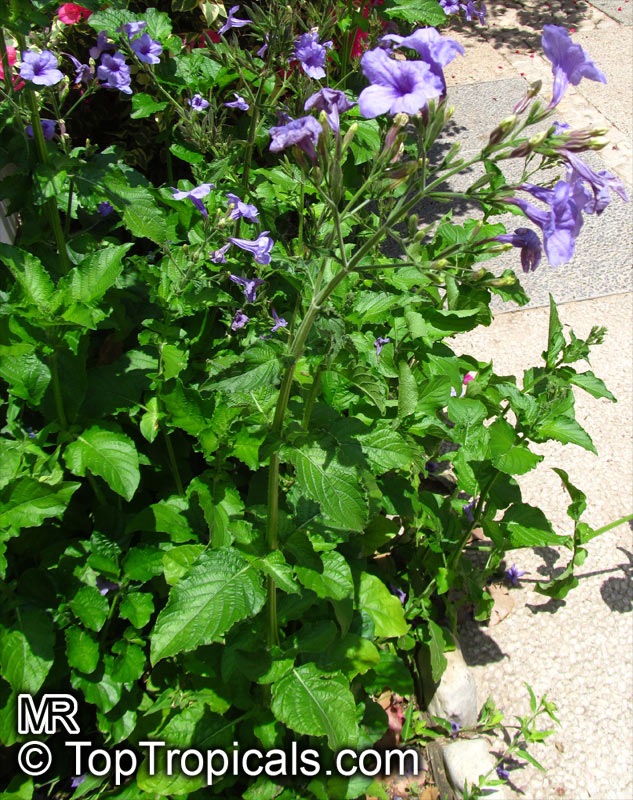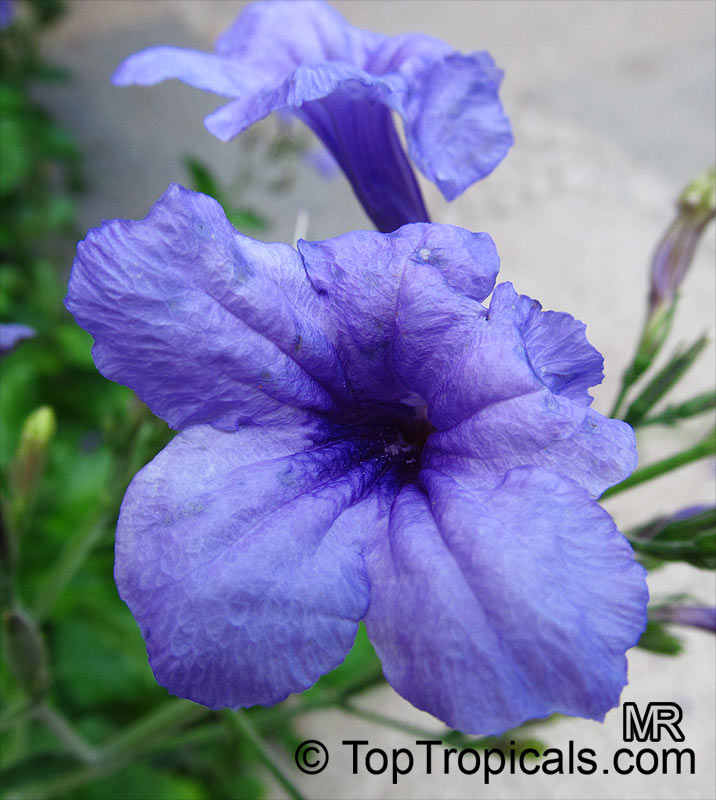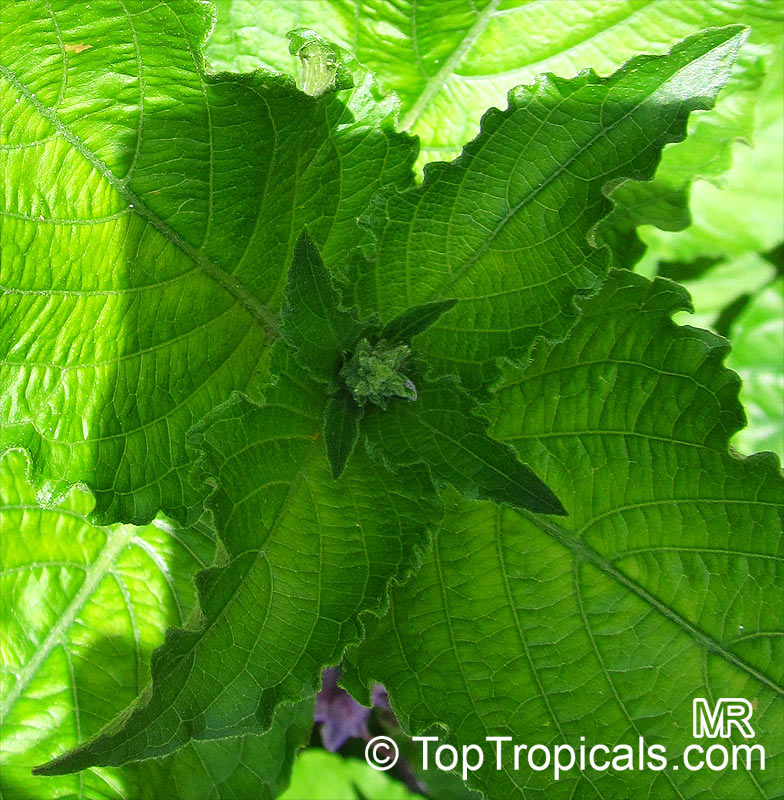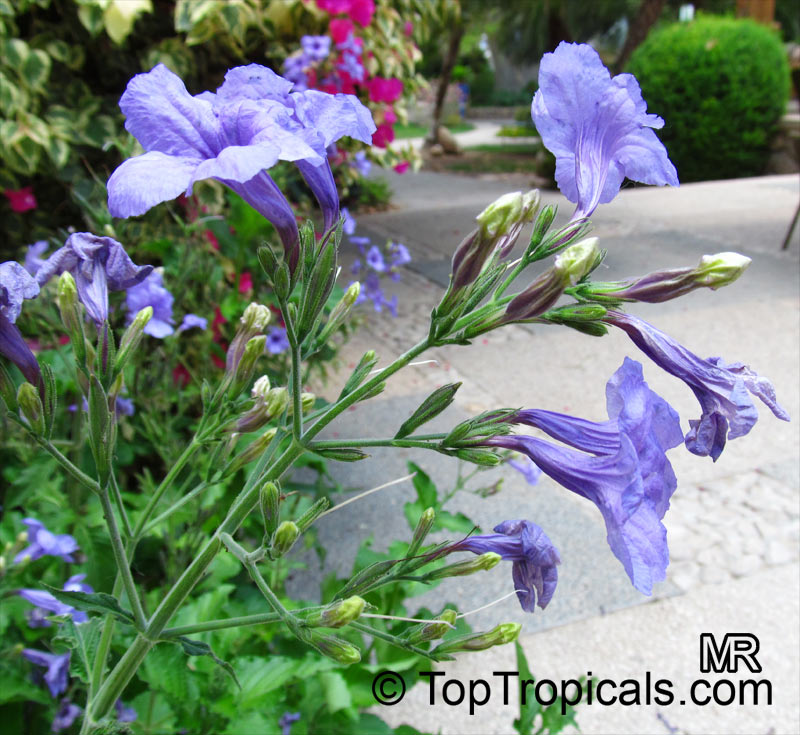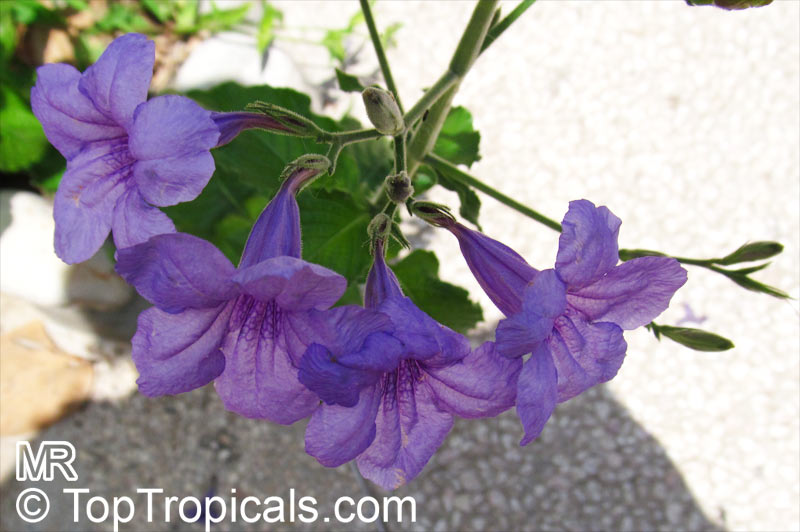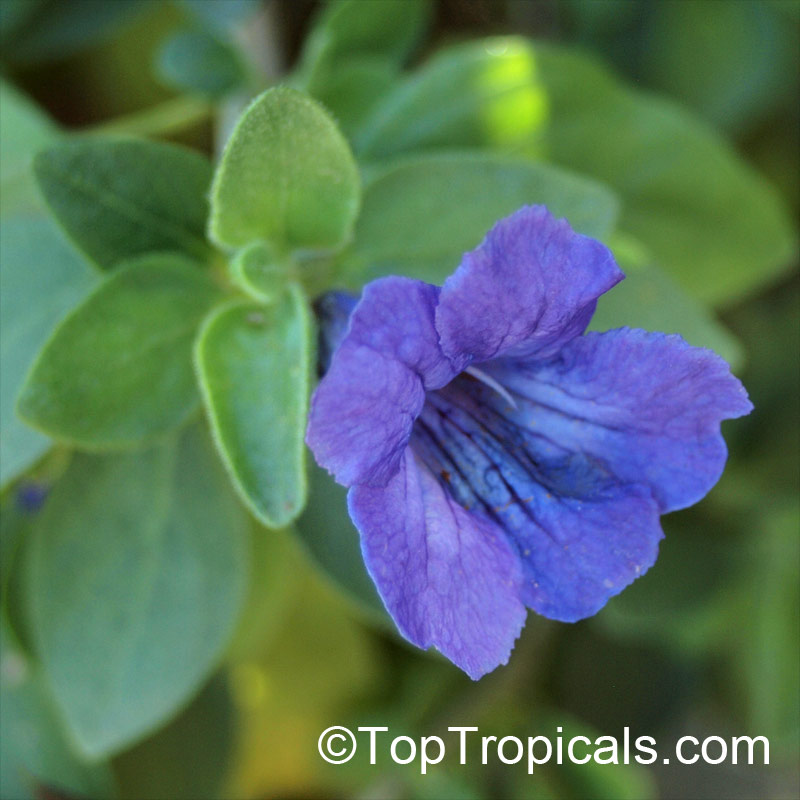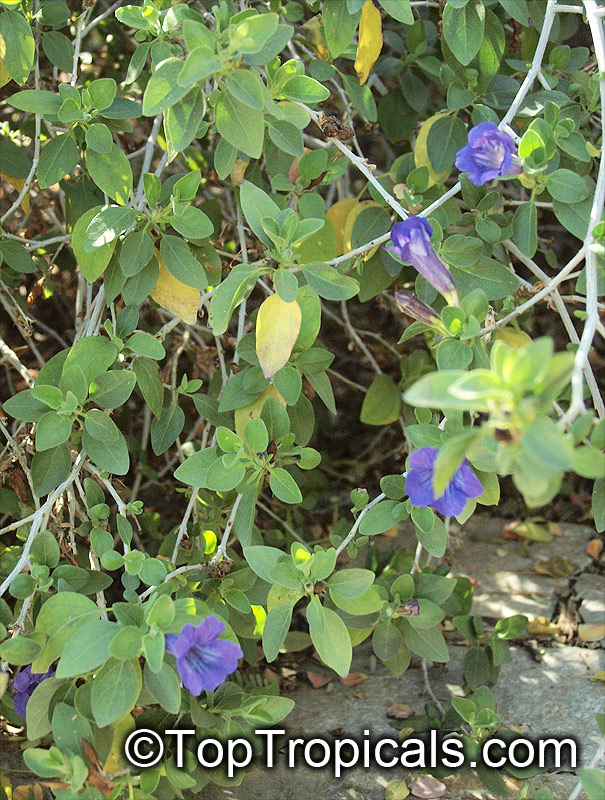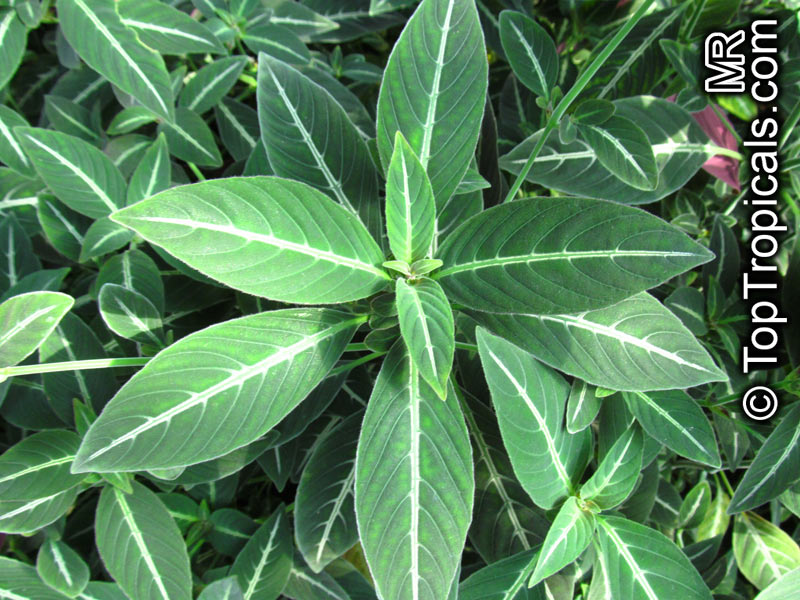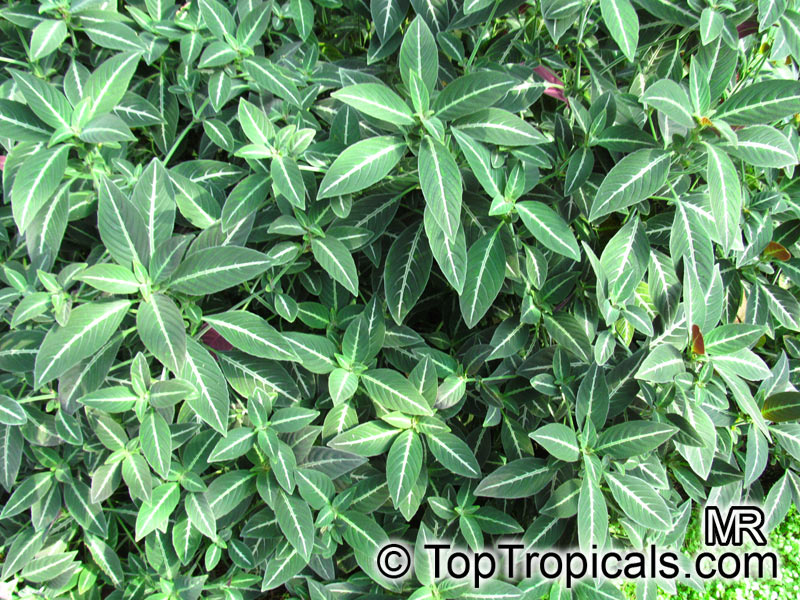Ruellia - Plant Encyclopedia Results
Top Tropicals Plant Encyclopedia
| Number of plants found: 17 | Next | 
|
Go to page: | 1 | 2 |
Botanical names: Ruellia affinis, Ruellia elegans
Common names: Red Ruellia, Flower of Caipora, Rio Red Ragin Cajin Ruellia
Family: Acanthaceae
Origin: Brazil






This is a rare winter blooming tropical ruellia with showy 2 inch wide scarlet flowers. Unusual for a ruellia, this is a vining shrub. Pinching out shoot tips will cause it to throw out lateral stems to form a more bushy plant to 3 feet. But, it also can be trained up a support to grow more vinelike. It blooms on older ripened growth. So give it time, light shade, adequate moisture, and warm temperatures. It sports 5 inch short-petioled elliptic leaves. Native to Bahia, Brazil, where it is found in moist forests.
Recommended Fertilizer: SUNSHINE Megaflor - Bloom Nutrition Booster
Botanical names: Ruellia chartacea, Ruellia colorata
Common name: Colorama
Family: Acanthaceae
Origin: Brazil







The most exclusive tropical Christmas flower!
Ruellia colorata, known as Colorama, is a rare and vibrant addition to any exotic container plant collection. Its brilliant scarlet bracts color up just in time for Christmas, staying bright carmine for several months. Native to Brazil, this small plant grows 2-4 feet tall, displaying vivid scarlet bracts and crimson flowers that add a touch of holiday cheer.
One of Colorama's most striking features is its photoperiodic response: the top leaves turn crimson red around Christmas due to changes in daylight length, much like the beloved Poinsettia. After winter, these leaves return to green, keeping the plant lively and versatile year-round. Photoperiodism, the process where plants respond to the length of day and night, triggers changes such as leaf coloration or flowering.
Its blooms are a magnet for butterflies and hummingbirds, making it a favorite for wildlife enthusiasts. Colorama thrives in shady to semi-shady spots and requires regular watering to stay lush and healthy. It's ideal for USDA zones 9-11 but can also be grown in colder regions if protected from frost. For winter care in cooler climates, move it indoors or to a warm area to keep this stunning beauty happy and blooming.
When grown in pots, ensure good drainage, use rich organic soil, and place the plant in a bright location. Prune twice a year to maintain its compact, bushy shape, and fertilize with a flowering fertilizer once established.
Ruellia colorata, known as Colorama, is a rare and vibrant addition to any exotic container plant collection. Its brilliant scarlet bracts color up for Christmas and stay bright carmine for several months.
Native to Brazil, this small plant grows 2-4 feet tall, showcasing brilliant scarlet bracts and crimson flowers that stay bright for months, adding a festive touch of holiday cheer. One of Colorama's most striking features is its photoperiodic response: the top leaves turn crimson red around Christmas due to changes in daylight length, much like the beloved Poinsettia. After winter, these leaves return to green, keeping the plant lively and versatile year-round. Its blooms are a magnet for butterflies and hummingbirds, making it a favorite for wildlife enthusiasts. Colorama thrives in shady to semi-shady spots and requires regular watering to stay lush and healthy. It's perfect for USDA zones 9-11 but can also be grown in colder regions if protected from frost. For winter care, move it indoors or to a warm area to keep it blooming. When grown in pots, ensure good drainage, use rich organic soil, and place the plant in a bright location. Prune twice a year to maintain a compact, bushy shape, and fertilize with a flowering fertilizer once established.
Recommended Fertilizer: SUNSHINE Megaflor - Bloom Nutrition Booster
Botanical name: Ruellia elegans
Common name: Red ruellia
Family: Acanthaceae
Origin: Brazil







Ruellia is a genus of very hardy, well-adapted flowers, or extremely invasive plants, depending on the climate and a gardener's tolerances. They are perennials and, as the seed pods dry, they spring open, casting seeds several feet. With a high germination rate, small colonies can spread fairly rapidly. Ruellia elegans producing deep red tubular blooms from late spring to fall. A very tough a durable perennial which spreads slowly and will create a groundcover in time. It seems to perform best in a loose rich fertile soil, and is fairly drought tolerant once established. Attracts butterflies and hummingbirds.
Botanical name: Ruellia macrantha
Common name: Christmas Pride ruellia
Family: Acanthaceae
Origin: Brazil






Ruellia macrantha (Christmas Pride ruellia) is a small plant that can grow between 2-5 ft tall. It is native to Brazil and hardy to USDA Zone 9-11. It requires full sun and regular water to thrive. It enjoys moderate water during the hot months and is fairly drought tolerant.
Ruellia macrantha is also known for its attractive flowers. The large, deep pink, trumpet-shaped blooms that measure 3 inch in length have a contrasting darker vein pattern and appear from fall through to winter. This splash of color is a beautiful addition to the garden and it is known to attract butterflies and hummingbirds.
It is best grown in fertile, well-draining soil, however, it is adaptable to a variety of soils. Where temperatures dip below freezing, it is best to grow Ruellia macrantha in a container and bring it indoors during winter months. When grown indoors, it should be placed in a bright spot and watered moderately. Provide the plant with a balanced fertilizer in the spring and water it more often. To promote flowering, cut back the stems in the spring and reduce humidity to prevent powdery mildew.
Botanical names: Ruellia makoyana, Dipteracanthus makoyanus, Dipteracanthus devosianus
Common names: Monkey flower, Monkey Plant, Trailing Velvet Plant
Family: Acanthaceae
Origin: Brazil






Ruellia makoyana, the Monkey Flower or Trailing Velvet Plant, is a species of flowering plant in the family Acanthaceae, native to Brazil. It is an evergreen perennial growing to 2-3 ft, with white-veined hairy leaves and trumpet-shaped flowers.
Called the monkey plant or the trailing velvet leaves, it is a showy spreading groundcover for shaded areas. Ruellia makoyana has attractive leaves which are purple tinged and with pretty silver markings on the upper surface, and very deep purple underneath. It blooms mainly autumn and early winter, with lovely carmine-pink flared flowers. It is best in part to dappled shade. Fall and winter bloomer, it provides color when it is needed most. Trailing Velvet Plant starts to flower in late fall and continues until spring. The flowers rise above the foliage so they are easily seen. The leaves have pronounced silver veining and are accented by the deep green velvety tones. This plant is perfect for limited space on windowsills or hanging baskets.
Called the monkey plant or the trailing velvet leaves, it is a showy spreading groundcover for shaded areas. Ruellia makoyana has attractive leaves which are purple tinged and with pretty silver markings on the upper surface, and very deep purple underneath. It blooms mainly autumn and early winter, with lovely carmine-pink flared flowers. It is best in part to dappled shade. Fall and winter bloomer, it provides color when it is needed most. Trailing Velvet Plant starts to flower in late fall and continues until spring. The flowers rise above the foliage so they are easily seen. The leaves have pronounced silver veining and are accented by the deep green velvety tones. This plant is perfect for limited space on windowsills or hanging baskets.
Recommended Fertilizer: SUNSHINE Megaflor - Bloom Nutrition Booster
Botanical names: Ruellia multisetosa, Suessenguthia multisetosa
Common name: Columbian Petunia
Family: Acanthaceae
Origin: Bolivia






Ruellia multisetosa (Columbian Petunia) is a native to Bolivia, a large shrub that can get up to 5-10 ft tall and is grown in USDA Zone 9-11. It produces beautiful pink flowers from spring through summer. The leaves on this plant are large, hairy and dark green. This plant prefers part sun or shade and regular water. In full sun, the leaves may become pale and the plant may dehydrate. As it is a fragile plant, support may be required to keep the stems upright. It can tolerate temperatures as low as 30F and will freeze to the ground in cold regions, though it will return quickly when temperatures rise. This fast-growing plant also takes well to cuttings and will root easily.
To grow Ruellia multisetosa in cold regions, it is best to keep it in a pot. Choose a pot with good drainage and plant the Columbian Petunia in a well-drained soil with plenty of organic matter. Place the pot in a sheltered area and choose the location wisely, avoiding draughts and strong winds. Water regularly, around once or twice a week, and fertilize during summer to help the plant grow.
Recommended Fertilizer: SUNSHINE Megaflor - Bloom Nutrition Booster
Botanical name: Ruellia nudiflora
Common names: Violet Ruellia, Longneck Ruellia
Family: Acanthaceae
Origin: Texas






Botanical name: Ruellia peninsularis
Common name: Desert Ruellia
Family: Acanthaceae
Origin: Baja California




Small glossy green leaves, deep blue bell shaped flowers nearly all year.
This is a very popular landscaping plant in Arizona and it is considered an evergreen shrub.
Botanical name: Ruellia portellae
Common name: Ruellia
Family: Acanthaceae






Ruellia portellae is very similar to Ruellia makoyana. R. makoyana is a little more compact and has slightly brighter carmine flowers than R. portellae.
| Next |  |
Use link to repeat this search:
https://toptropicals.com/cgi-bin/garden_catalog/cat.cgi?find=Ruellia&search_op=and&keyword_op=and&language=e&number=10
&no_change_lang=1&user=tt&sale=1&first=0
